A tale in images of Der Ring des Nibelungen for which inspiration was sought in Steampunk - that combination of nature and digitless science in a world that can be simultaneously antique and futuristic. The images were generated with AI software.
The world of the story of Der Ring is a world in which humans, the moment the waters of the Rhine begin to flow (to the tones of a swelling Es chord), have already left their mark. A world in which industrialisation and moral ambiguity go hand in hand (a bit like in the Bayreuther Chéreau Ring). A world in which a desolate landscape is host to gods, giants, dwarves and humans who all seem, in one way or another, to be lost in it. A landscape in which creatures are strangers to the world they inhabit, strangers to each other, and above all, strangers to themselves.
DAS RHEINGOLD (the preliminary evening of the Steampunk Ring) First scene Child of a loveless mother and ugly as hell. Yet, Alberich the Nibelung hopes for romance when, walking along the banks of the Rhine, he hears the singing of three Rhinemaidens. The teasing lasted a bit long. It became clear to the Nibelung that the three water nymphs made fun of him and never considered him a serious partner for their love. Fortunately, they were kind enough to point out to Alberich the Rhinegold and the secret it held: the gold can be made into a magic ring which gives power to rule the world, if its bearer first renounces love. The dwarf does not think twice. He, who has never known love, now knows that he will never need love. Alberich steals the gold, and flees. Second scene We leave the lowlands and find ourselves in a mountainous landscape where chief god Wotan casts a satisfied glance at the Valhalla that Fasolt and Fafner have built for him. It appeases, for now, Wotan's appetite for megalomania. As payment for their services, the giants have already taken Freia. For Fasolt, a giant with a sensitive heart, Freia is more than a deposit. For him, she is the promise of something beautiful in his life. But no Freia, no apples, no eternal youth for the gods. Wotan dismisses any concerns his fellow gods may have about this. Loge surely will come up with a solution for this. Chain-smoking cunning Loge is certainly not without humour. You are never sure what to make of him but if you are susceptible to it you will certainly laugh at his dry remarks. He talks about Alberich, his golden ring and how the dwarf subjugated his fellow Nibelungen to mine treasures for him. Loge suggests the giants to pay them with the Nibelungen hoard. The giants agree, for now. To the sound of a droning, dark orchestral interlude, two ominous-looking fellows descend into Nibelheim. One of them, Wotan, can think of only one thing, the ring and the power it holds. Loge and he are not here for business as usual. Their business is theft. Third scene In Nibelheim the Nibelungen are enslaved by Alberich with the power of the ring. Alberich's brother, Mime forged a magic helmet, the Tarnhelm. With this device one can become invisible and take any shape one want. Fourth scene Alberich should have known better when Loge dared him to use the Tarnhelm to take the form of a toad. But the dwarf refused to turn down the challenge and now faces the consequences. Loge and Wotan capture the toad and rob him of the ring, the hoard and even the Tarnhelm. Alberich, who once cursed love, now curses the ring - thus condemning all its possessors. Once back in the godlike realm, Wotan cannot enjoy the ring for long. The giants won't settle for just the Nibelungen hoard. They want that ring too. Once in possession of it, Fafner, in lust for the ring, beats his brother Fasolt to death. Cain and Abel in the world of the gods. Wotan sees it happen with a certain sense of discomfort. On his way to Valhalla, across a rainbow bridge Donner smashed out of the rocks, the nuisance in him grows. He has been given a preview of the curse the ring carries. Not that Wotan was not warned about all this. Erda, the Goddess of the Earth, had addressed the chief god in lyrical yet insistent terms, warning him of the misfortune the ring would bring him. So Wotan gave the ring to the giants, but even more than by her words of warning, he was impressed by Erda's seductive innocent appearance. And as soon as this opera, Das Rheingold, is finished he will impregnate her with eight children: the Valkyries. Those children, Brünnhilde in particular, we will encounter in the following opera. They had one job. And they miserably failed at it. Now, at the end of Das Rheingold, the daughters of the Rhine lament in horror over the loss of the gold they were supposed to be guarding. We leave them alone for now but they will return in the last opera of this tetralogy: Götterdämmerung. But more on that later. Next: Die Walküre. Software: StableDiffusion XL, Photoshop
- Wouter de Moor
0 Comments
A tale in images of Der Ring des Nibelungen for which inspiration was sought in Steampunk. The images were generated with AI software. After Das Rheingold, Wotan not only fathered eight children with Erda, the Valkyries, but he also fathered the Walsungen twins Siegmund and Sieglinde. Wotan also had time between operas to stick a sword in a tree, Notung. A weapon for times of need, for him who deserves it. First act She found him after a violent storm in the house. It took her a while to recognise in the stranger her long lost brother, the love of her life. After everything Sieglinde had to endure, she no longer dared to hope for a little bit of happiness in her life. The man she was forced to marry, Hunding, was not the most sensitive of characters. That is not to say he was a man without honour. That stranger who seemed to have a kinship with his wife could stay a night but the next day he would be food for the dogs. Second act Hojotoho! For Brünnhilde, life is a tremendous exciting affair. And soon she is going to assist Siegmund, the one and only true hero of this whole story, in his fight with Hunding. Life is coughing up roses. Fricka turned a blind eye to it for a while, Wotan's cheating. But now enough is enough. Wotan must withdraw his support for Siegmund and support Hunding. A marriage must be honoured. And if Wotan has any love for power, he will make sure that he himself abides by the rules he imposes on everyone else. She comes in hard on him, on her husband the chief god. With cool headed arguments she shatters Wotan's illusions of freedom and love. Both old-fashioned and ahead of her time she is: Fricka, the old storm, the old party pooper. Third act It is one of the most recognisable tunes in music history. The sonic storm on which the Valkyries bring dead heroes to Valhalla on their steam-powered horses. The Walkürenritt is exactly the boost this opera needs after the dramatic second act (in which Siegmund is killed by Wotan's intervention, Wotan has angrily gone after Brünnhilde and Sieglinde has fled into the forest with the fragments of Notung). All the drama that has preceded finds a climax in Wotan's moving farewell to his daughter Brünnhilde, which may be considered one of the most beautiful moments in all of opera. For her who was once his favourite daughter, Wotan had in mind an honourless sleep, in a stove in an old factory far away. Eventually, his anger soothed and he summoned Loge, who was after all the God of Fire, to light the stove. Only the bravest hero will dare to risk his hands on the furnace fire that now protects Brunnhilde. We meet that hero in the next opera: Siegfried. Wotan's Farewell (bonus reel)
Audio: George London (Leinsdorf, 1961) Software: StableDiffusion XL, Photoshop, After Effects
- Wouter de Moor A tale in images of Der Ring des Nibelungen for which inspiration was sought in Steampunk. The images were generated with AI software. While Brünnhilde was sleeping, Sieglinde, whom she rescued, gave birth to a child. That childbirth Sieglinde did not survive. Ignorant of his parentage, her son, Siegfried, has grown up with the dwarf Mime. First act Mime is a clever dude. Good with tools too. But with forging Notung's shards together, he struggles. For the difficult tasks, however, he has Siegfried, the archetypal strong boy, whom he intends to use to eventually get the ring and the treasure of the Nibelungen, Young Siegfried is a man whose strength is matched only by his foolhardiness. The latter is, to be clear, a virtue. It perhaps requires some mental flexibility to go along with the idea Wagner apparently had of a hero. That he has Siegmund (perhaps the only one in this entire history worthy of the qualification hero) followed in the story by the gullible Siegfried, but in this opera cycle it happens. And who are we to second-guess the master here. Second act After killing his brother, Fafner retreated to the forest where, with the help of the Tarnhelm, he transformed himself into a dragon train. Loaded with the Nibelungen hoard, he rampages through the dark depths of the forest. And no one dares to come close. Did no one dare to approach Fafner? No, there was one person who dared to face Fafner without fear. Siegfried, the brat who did not even know what fear was (and therefore could not be brave) smashes the dragon locomotive to pieces with Notung. After that act of demolition a Waldvogel pops up. Besides telling Siegfried about the existence of Brünnhilde, she tells the pure fool about the ring that is there among all those treasures. Why does the Waldvogel do that? Has that creature of the woods been sleeping the previous operas or something? As we saw at the beginning (after Wotan mutilated the world ash tree) nature is corrupted - and those who represent nature not to be trusted. Purified by dragon steam, Siegfried can also read Mime's mind now. He kills the dwarf on his way out. Third act They are like a tired old couple. He's too tired and disappointed to be mad at her. And she, despite being the Goddes of the Earth, doesn't know what to say to him anymore. After his farewell to Brunnhilde, Wotan is no longer himself. As Wanderer he still wanders through this opera, but the end he's been longing for since the second act of Die Walküre can't come soon enough for him. When Siegfried crosses Wotan's/Wanderer's path, an important part of the latter's wish for the end is about to be fulfilled. When Siegfried recognizes in Wotan the man who had a hand in the death of his father Siegmund, he shows, for the first time, some emotion. He smashes the spear of the chief god into pieces, after which Wotan calls it quits. From then on Wotan's presence in this story is reduced to the presence of his two ravens, Huginn and Muninn. Siegfried continues on his way and arrives at the old factory that the Waldvogel told about. He smashes a door and enters the factory hall. There is an oven at the back against a high wall. Blazing with flames. He goes looking for a pair of asbestos gloves. The dragon could not frighten him, but now that Siegfried sees a woman for the first time, he is shocked. What to do in such a case? Kiss her awake, like in fairy tales? Allright then. While Brunnhilde, upon waking up, mistakes the lamps in the factory hall for the sun, Siegfried is already preparing for the final duet. They are a lovely couple, Brünnhilde and Siegfried, the aunt and her cousin. In a frenzied, passionate, insane duet, they scream each other from one climax to the next. Love and death, death and love. And laughing of course. Afterwards they fall into each other's arms. As we saw with Siegmund and Sieglinde, also Siegfried and Brünnhilde like to keep it in the family when it comes to love. And while the new love couple snuggles together, we prepare for the final: Götterdämmerung. Software: StableDiffusion XL, Leonardo, Photoshop
- Wouter de Moor A tale in images of Der Ring des Nibelungen for which inspiration was sought in Steampunk. The images were generated with AI software. After the opera that bears his name, Siegfried takes some quality time with Brünnhilde. He now has a life he did not know before. Not that he has now become a proper family man. He is still a rascal, some tableware occasionally breaks, but he leads, especially for a hero who killed a dragon, a relatively quiet life. Prologue Weaving the Rope of Destiny, the Norns read of the past, the present and the future. No good news for the gods coming up. As their narration approaches the point where the fate of the ring becomes clear the rope breaks. Well, we will see for ourselves in due time. Not that he didn't want to break it to Brunnhilde sooner but now he really needs to go. In search of new adventures. After all, Siegfried is the hero of this story and too much domestic happiness knocks the story dead. After kissing her goodbye he gets into his zeppelin, on his journey he sees the Rhine below. First act Siegfried is on his way to the world of the Gibichungen, the humans in this story. And with the arrival of humans on the scene, things take another dramatic and decisive turn. But first Siegfried is welcomed in a beautiful hall (for those who have a taste for it) by Gunther, king of the Gibichungen people. Gunther needs to get a woman. A woman worthy of a king and Hagen, son of Alberich, has come up with a cunning plan for that. Brünnhilde is the perfect bride for Gunther and to make that happen Siegfried is going to help him. Siegfried himself doesn't know that, as he doesn't know anything anymore after Hagen pours him a cup of tea. What Siegfried does know is that he is going to court the woman sitting there at the bar (her name is Gutrune) While Siegfried is offered a cup of tea on the other side of the banks of the Rhine, Brünnhilde is also having tea. Waltraute, sister in Valkyrie affairs, is visiting but things don't really want to get cosy. She won't give away that ring she got from Siegfried, even when Waltraute kindly but urgently asks her to. (Neither would you if you were asked to give away your wedding ring.) But nastier matters await Brünnhilde. Siegfried, with no active memory of her, has fallen for Hagen's trick and is on his way to Brünnhilde to win her for Gunther. With the help of the Tarnhelm, he takes the guise of Gunther, himself too weak to make a sturdy woman like Brunnhilde his own, and takes Brünnhilde back to the Gibichungen court. Second act Brunnhilde does not exactly react relaxed when she finds out that Siegfried has cheated on her with another woman. She seeks revenge. And in the same way that Siegfried let himself be used by Hagen previously, Brünnhilde lets herself be used by Hagen. She engages in a plot to kill Siegfried. Third act Siegfried is always a cheerful guy but today he is extra cheerful. Today he goes hunting with Hagen and his men. But first he is going to tease some Rhinemaidens who are interested in that ring of his. Shall he give it back? (Perhaps/perhaps not.) Siegfried's death
(ominous music playing) After the dramatic events during the hunting party in the forest where Hagen kills Siegfried, we are heading towards the finale of Götterdämmerung and the end of the entire Ring cycle. When Brünnhilde finds out that it was Wotan who was behind it all, has tricked her, she is in a blaze. The gods need to go and with them mostly everything and everyone else. Even her favourite horse Grane, a loyal companion in good times and bad, does not escape her destructive drift. The world needs to be cleansed and everyone needs to do their part. A woman setting the world on fire. Brunnhilde has never been a pussy but the injustice done to her fuels her anger with a deeply felt determination. With Valhalla going up in flames, the world as we know it comes to an end. An end that harbours a new beginning. The beginning of a world without gods. Go and rest Wotan, your time is (finally) up. The Rhine overflows its banks, extinguishes the flames and the Rhinemaidens swim in to claim the ring. The Rhinegold is back where it belongs, at the bottom of the Rhine, where we can only hope the daughters of the Rhine will do a better job of guarding it this time. Epilogue (bis) We leave it here with the man who set all of the preceding drama in motion. What has become of Alberich? The story goes that, after the Rhine overflew its banks, he found shelter in an abandoned mine. Thus surviving, as the only one of the main characters, the story of Der Ring des Nibelungen. A story that is, after all, named after him. Stories circulate of people having seen Alberich years after the world of the gods had come to an end. The dwarf is said to lead a reclusive life and rarely go out. Waiting for time to come and get him too. But if you do happen to see him, perhaps you should ask him about it, about the story of the ring. Maybe it will teach you something. About yourself. About the world you live in - a world without gods. Software: StableDiffusion XL, Photoshop, After Effects
- Wouter de Moor |
TIMELINE
July 2024
|


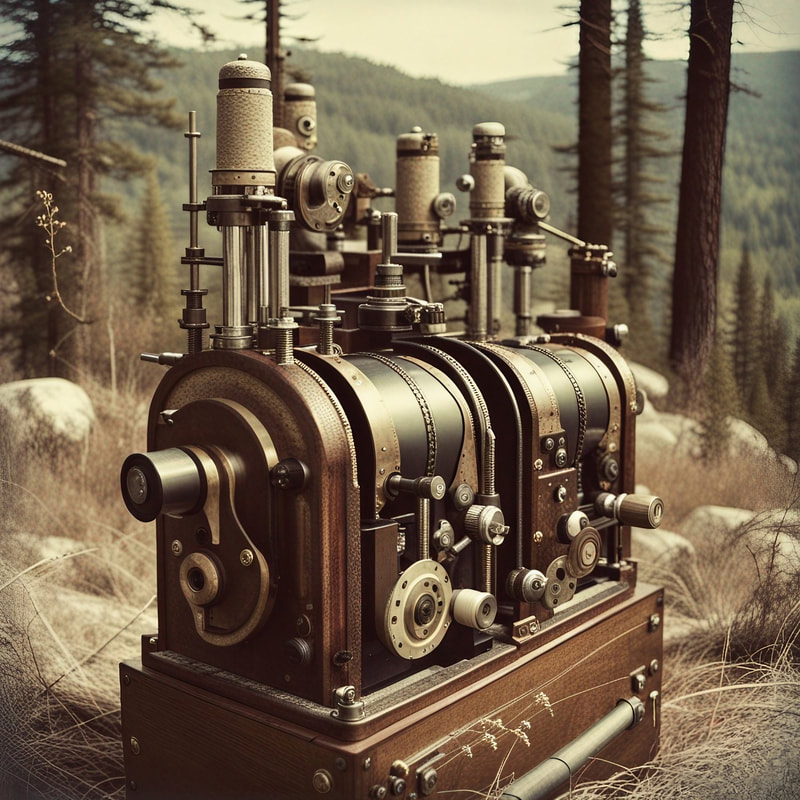
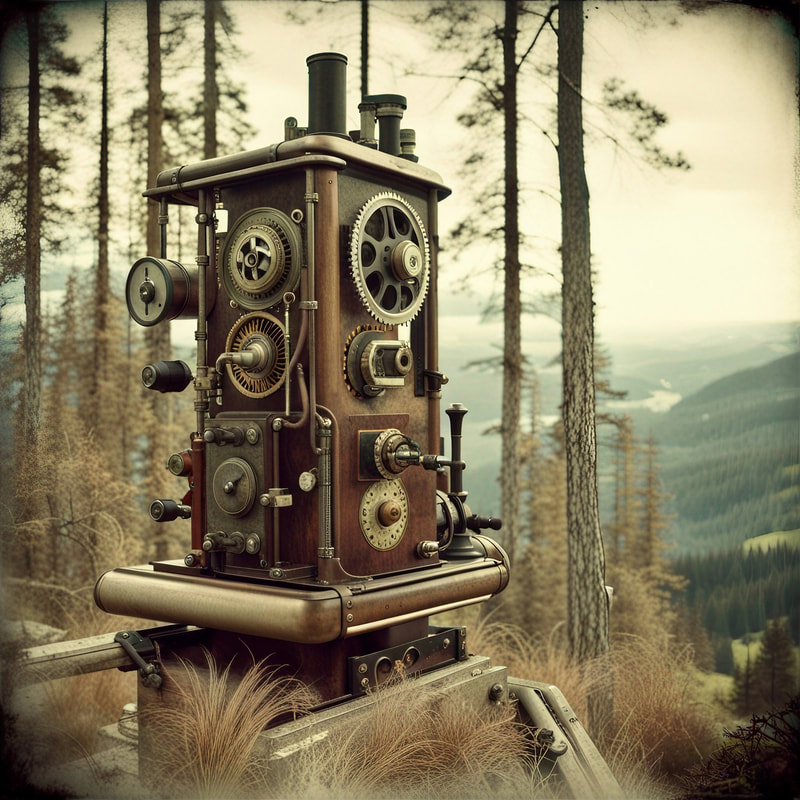
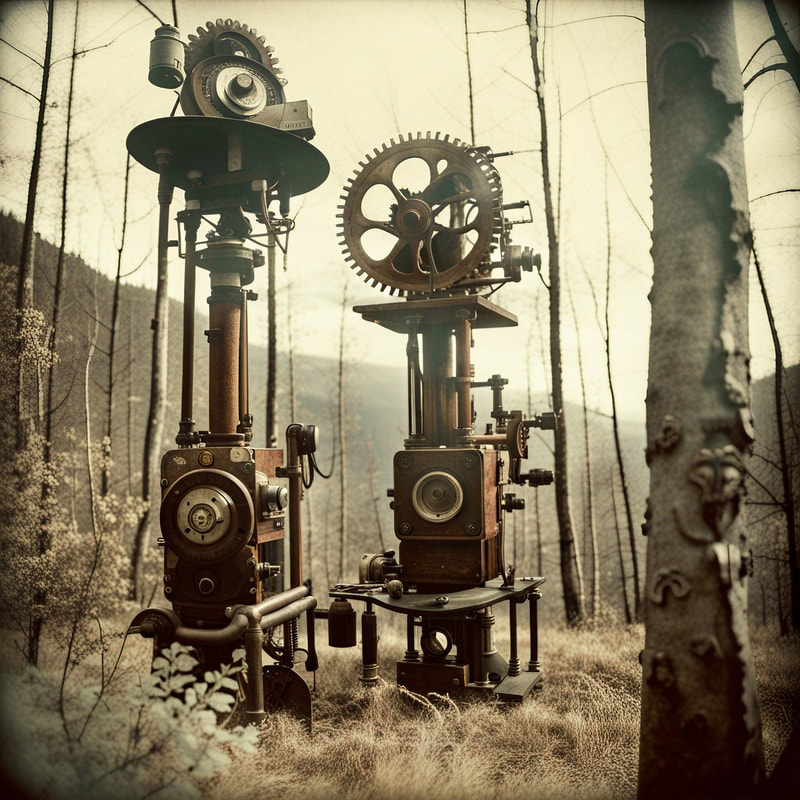
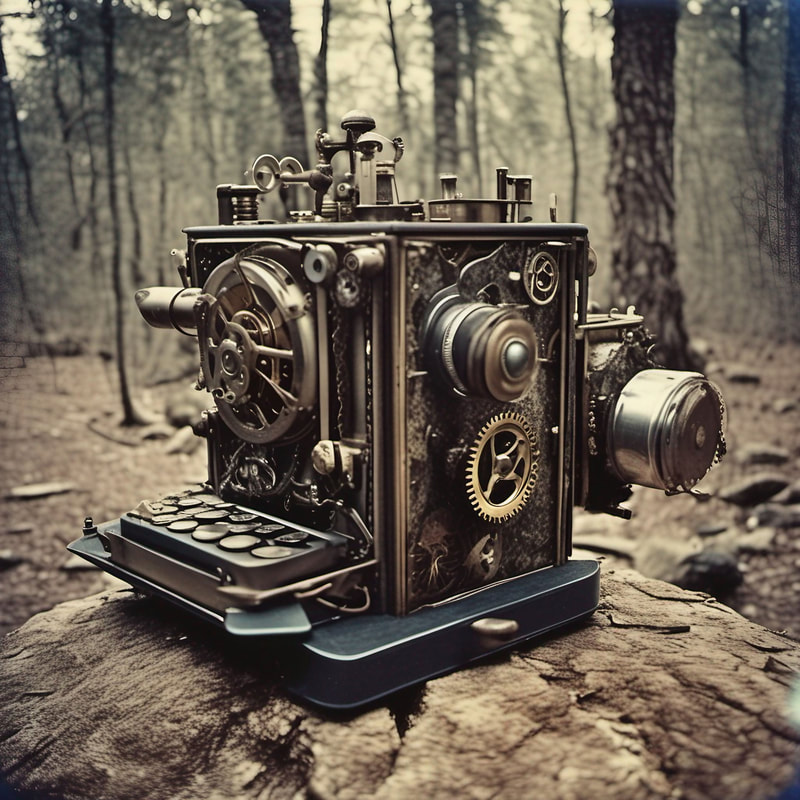
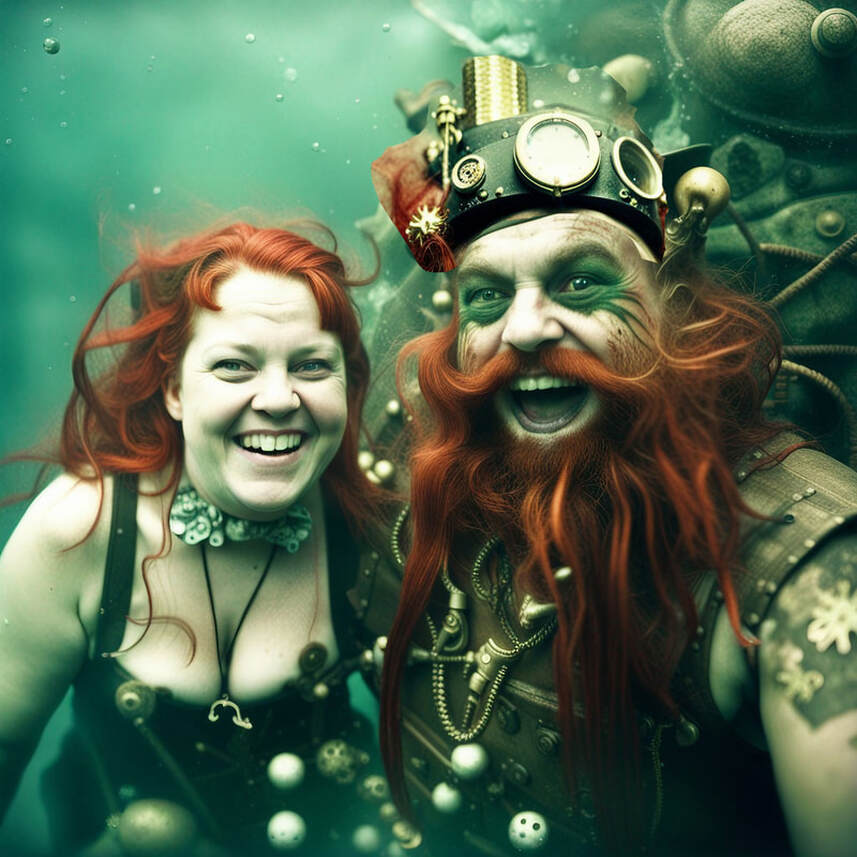
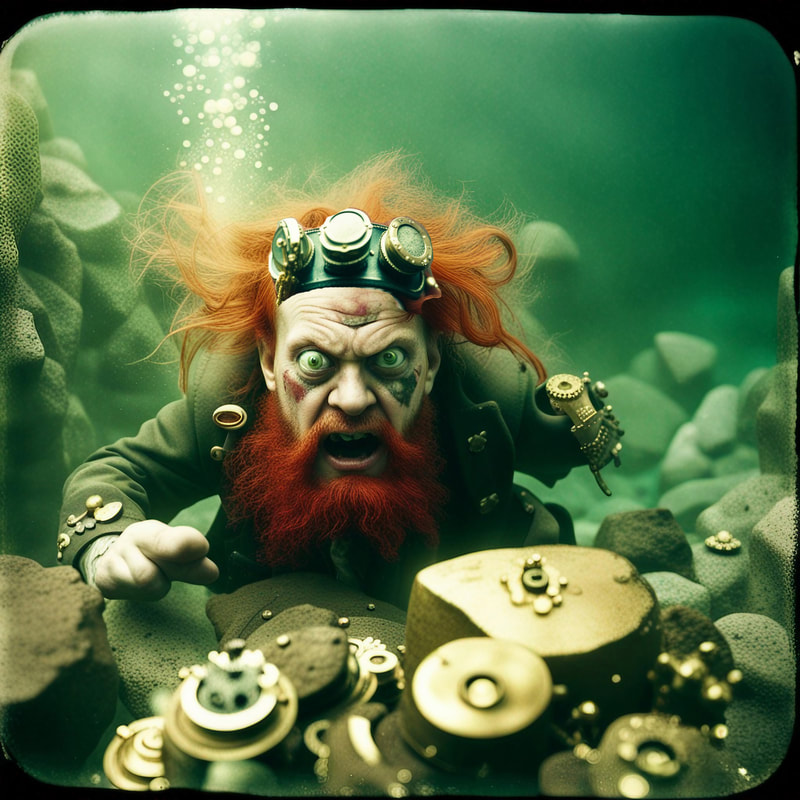
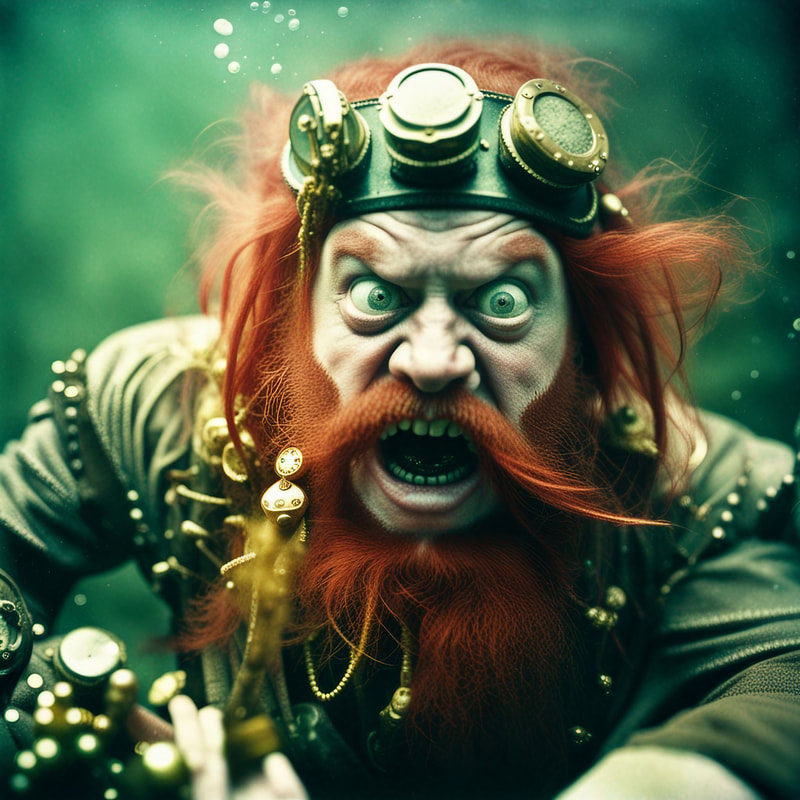
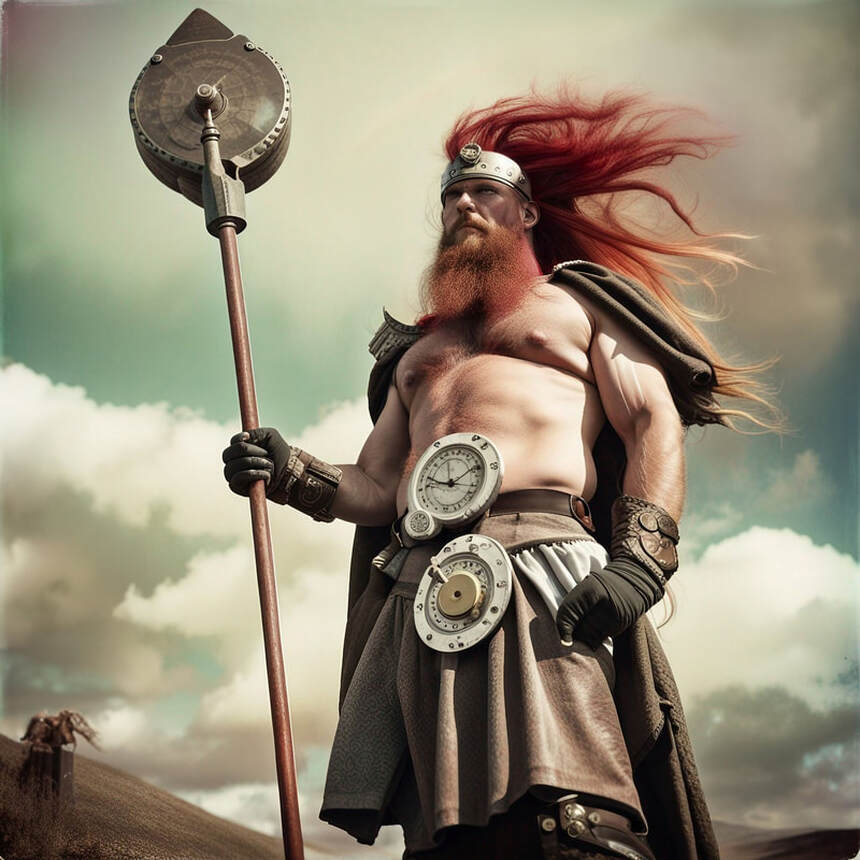
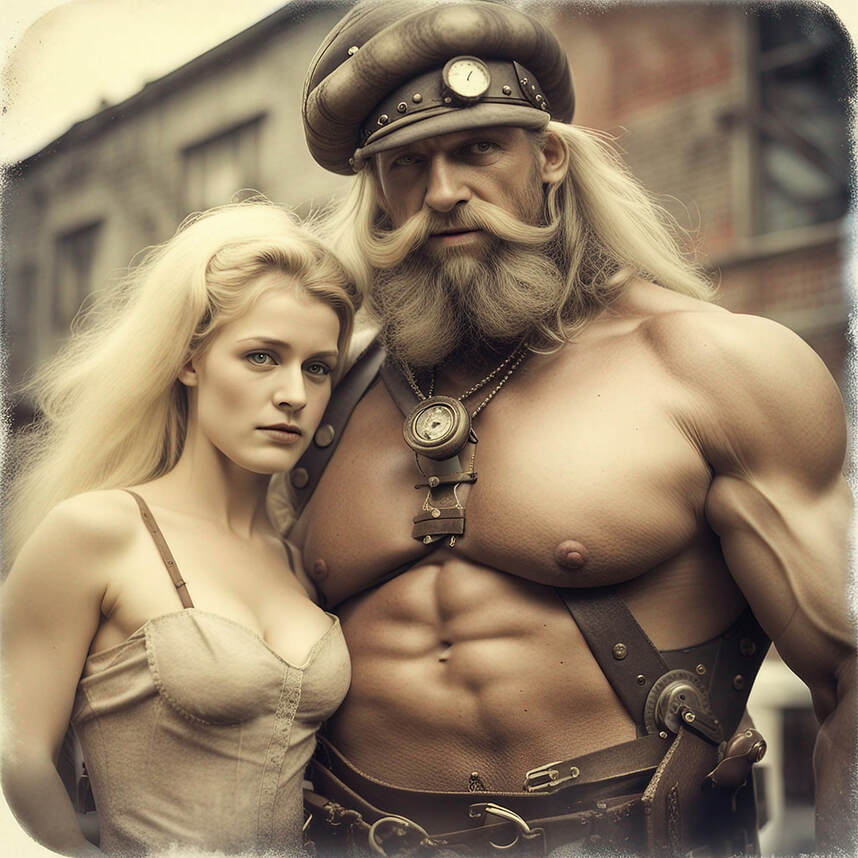
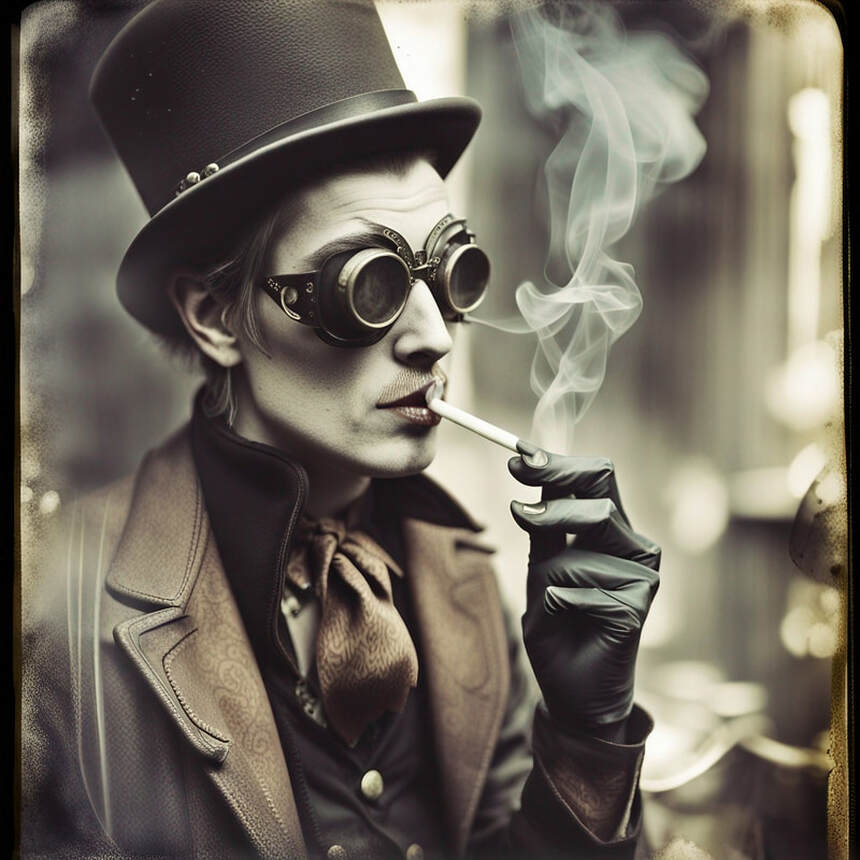
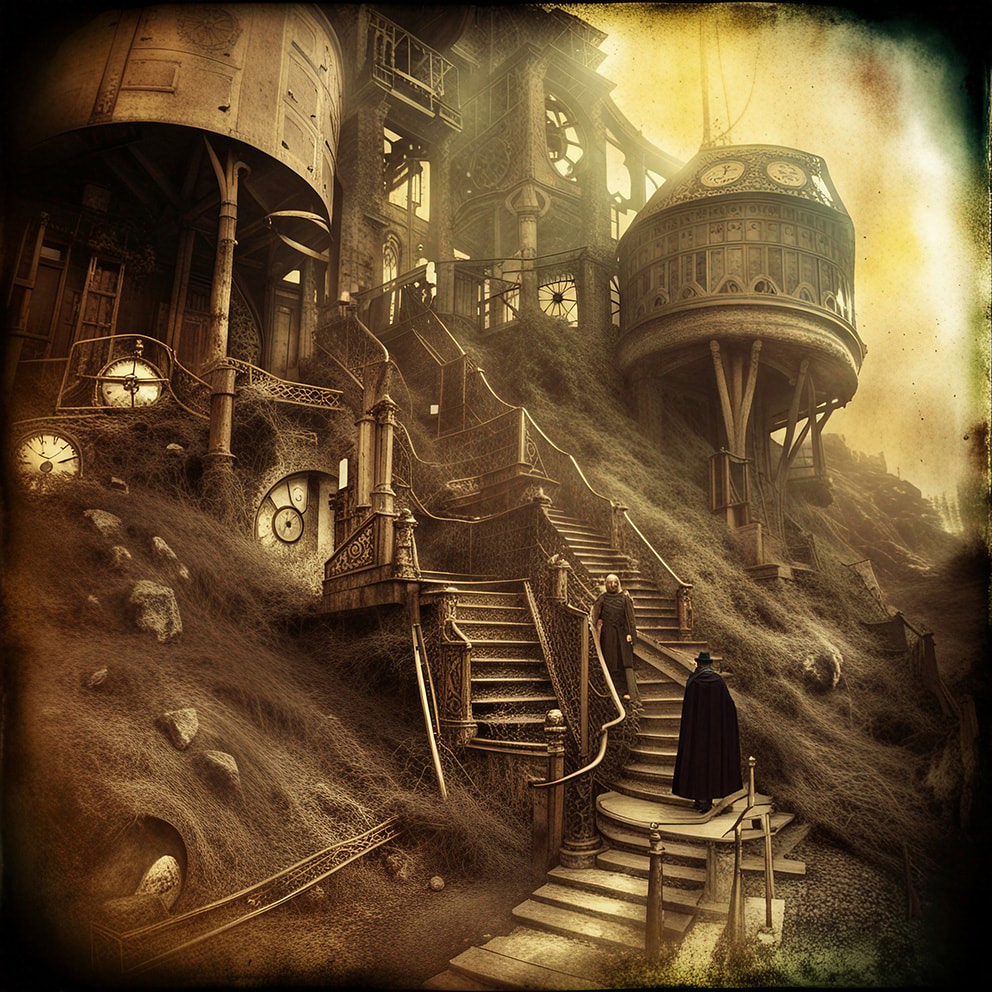
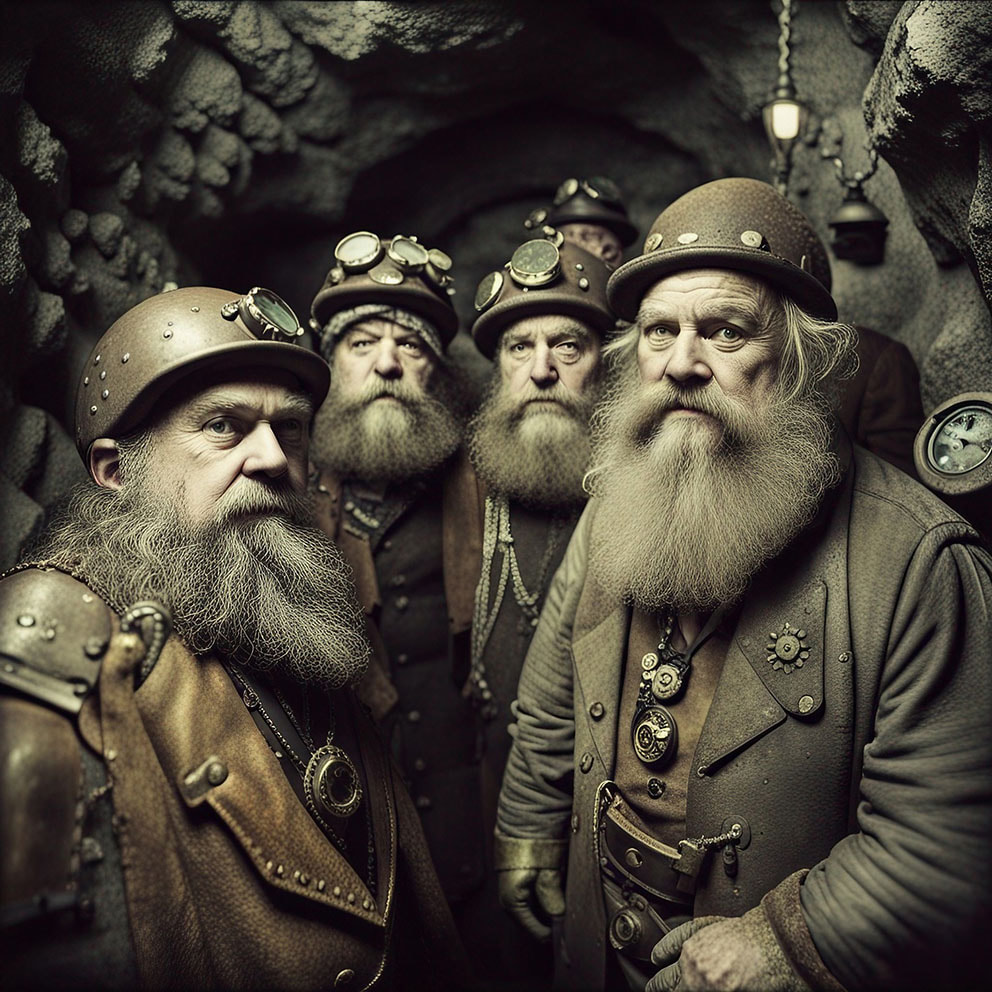

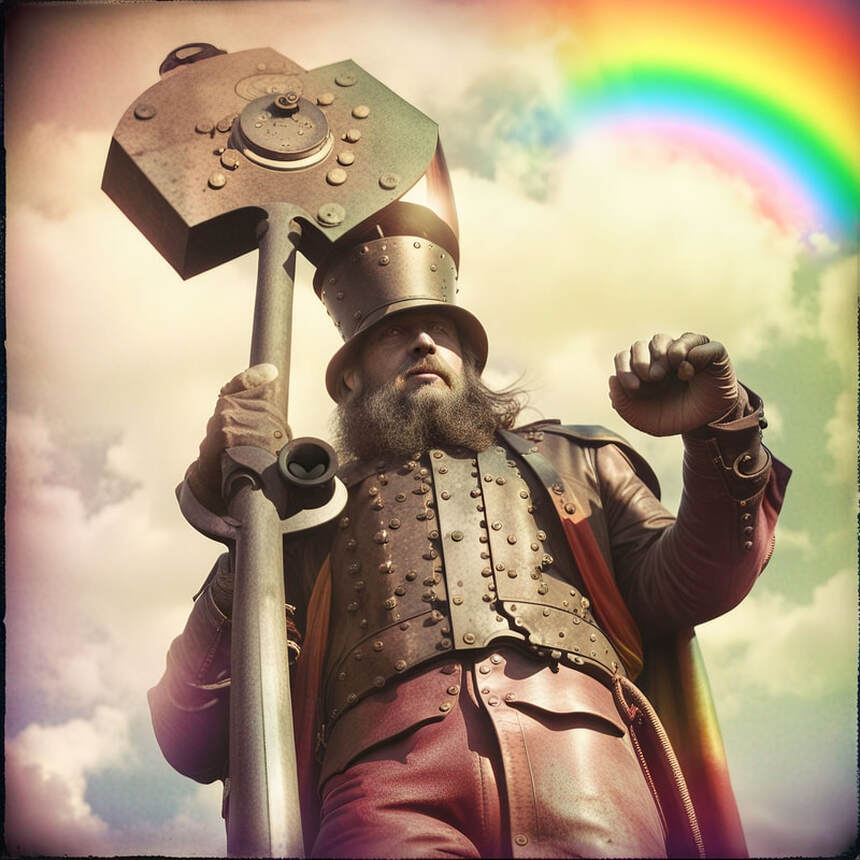
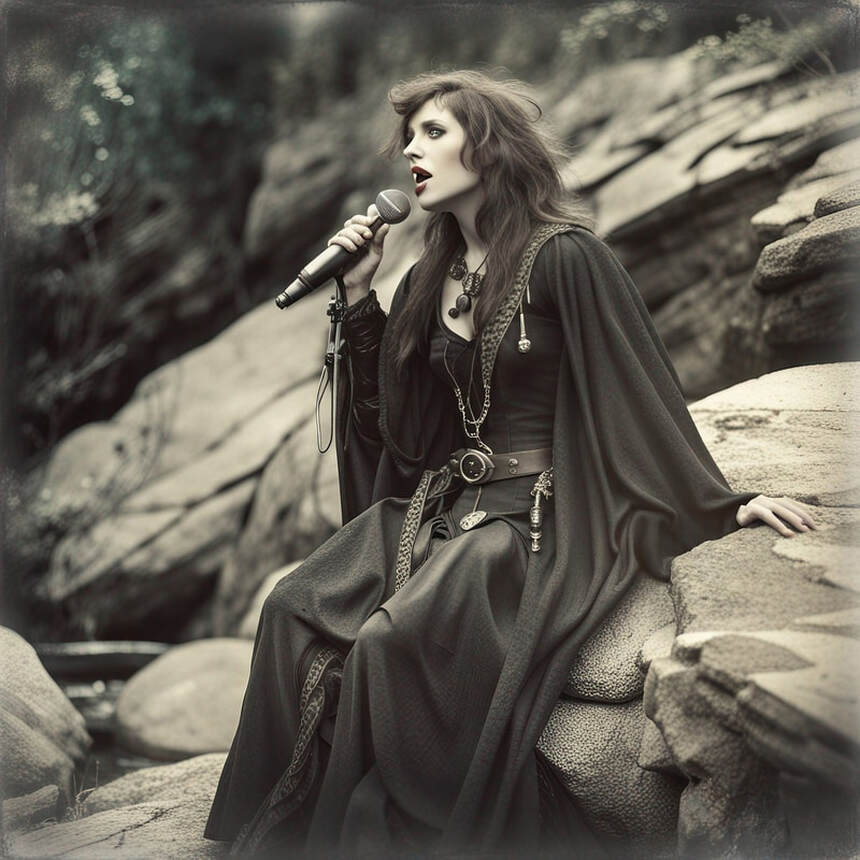
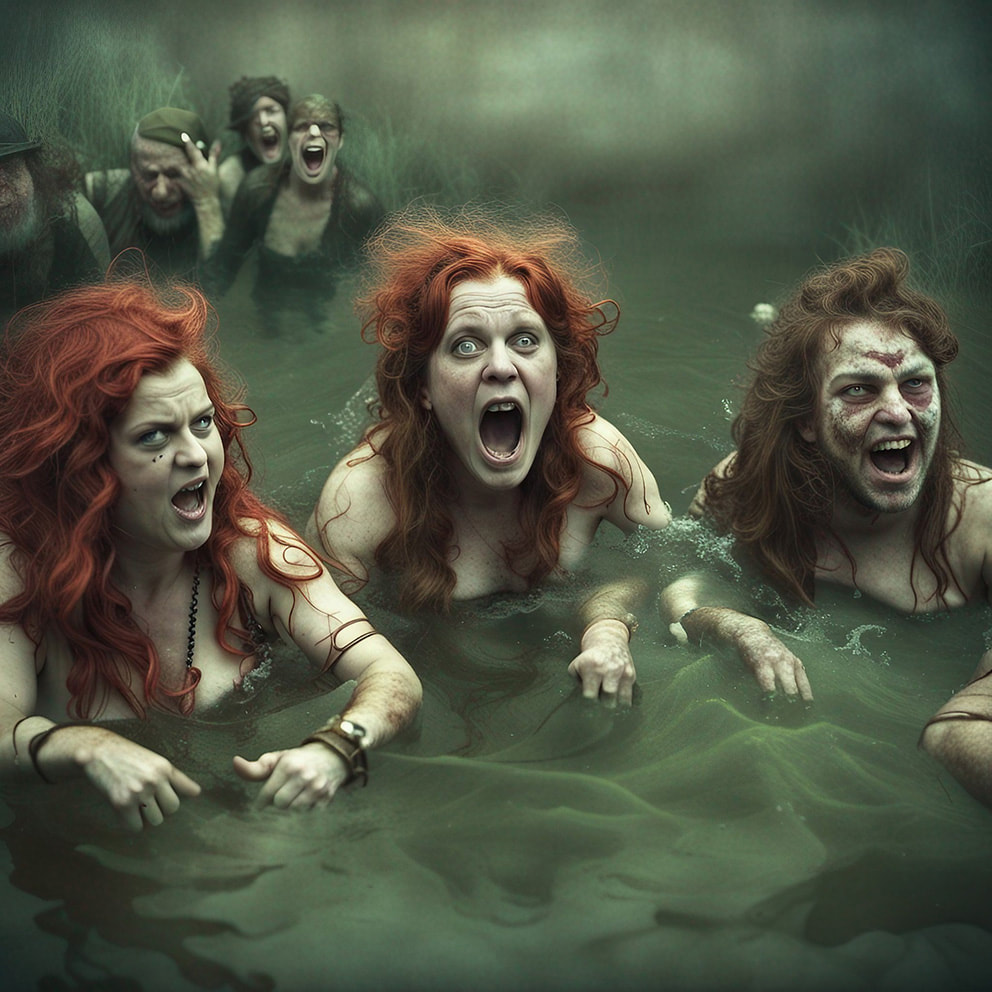
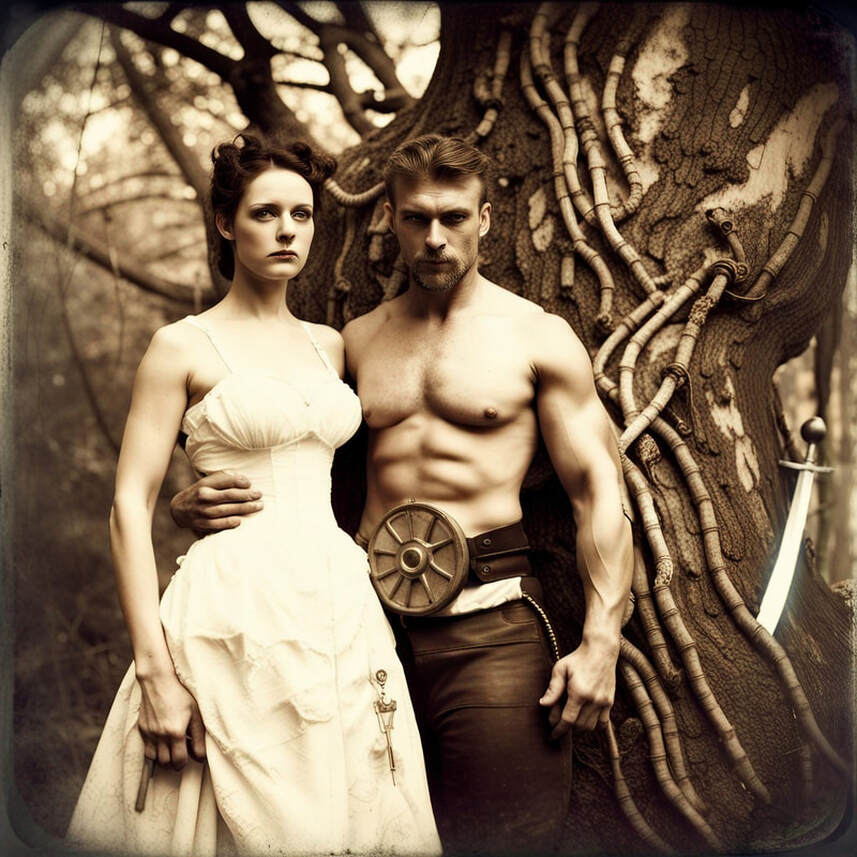
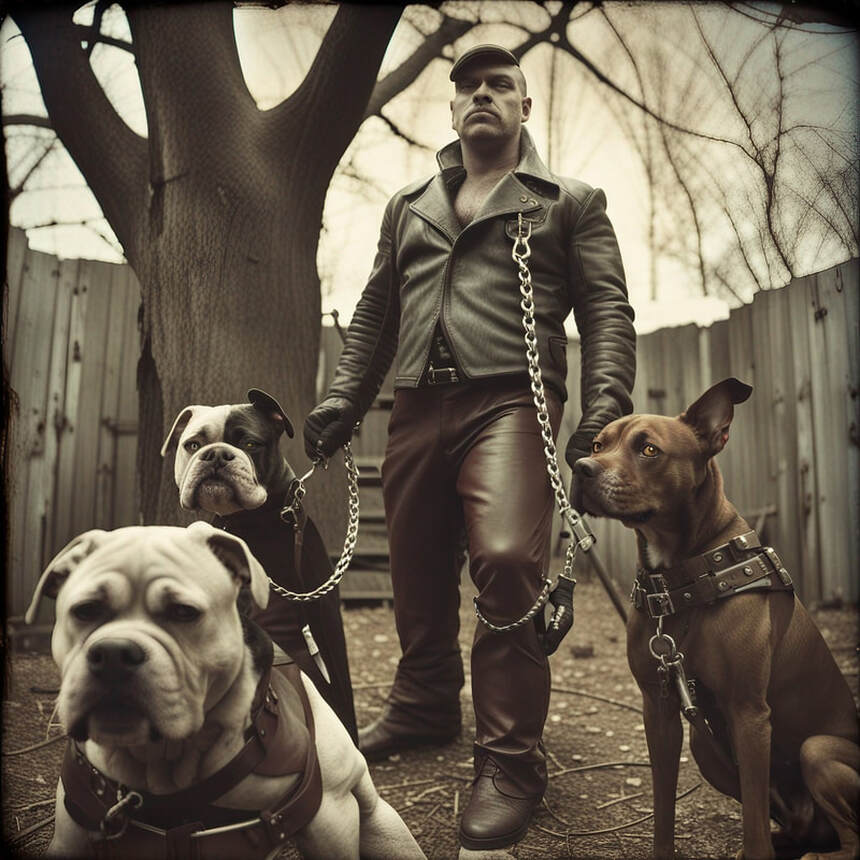
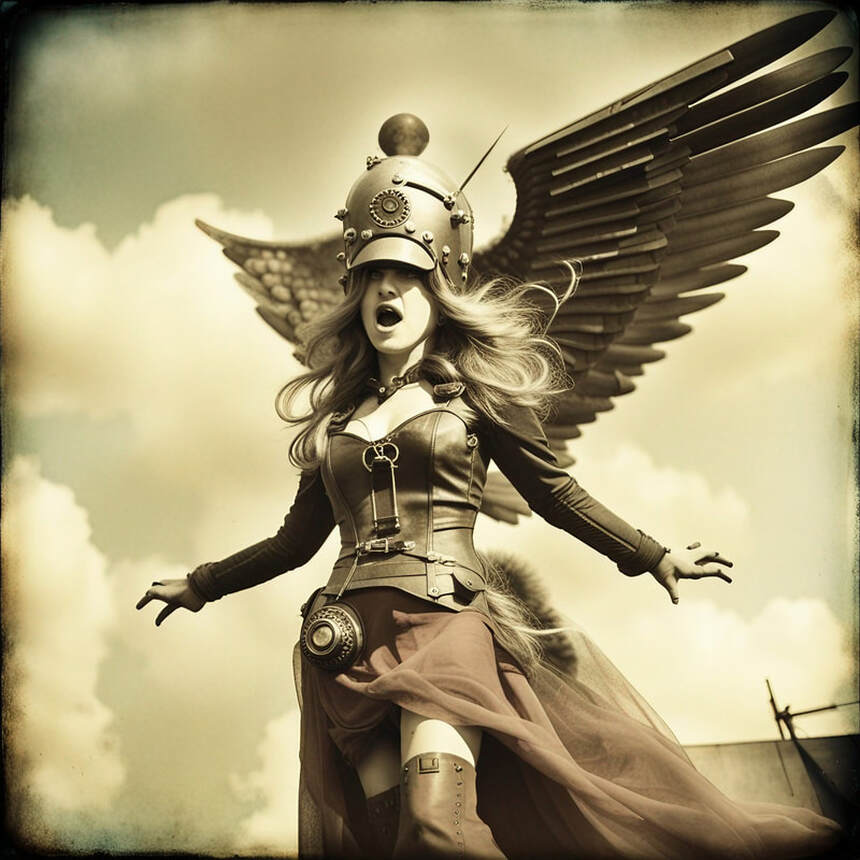
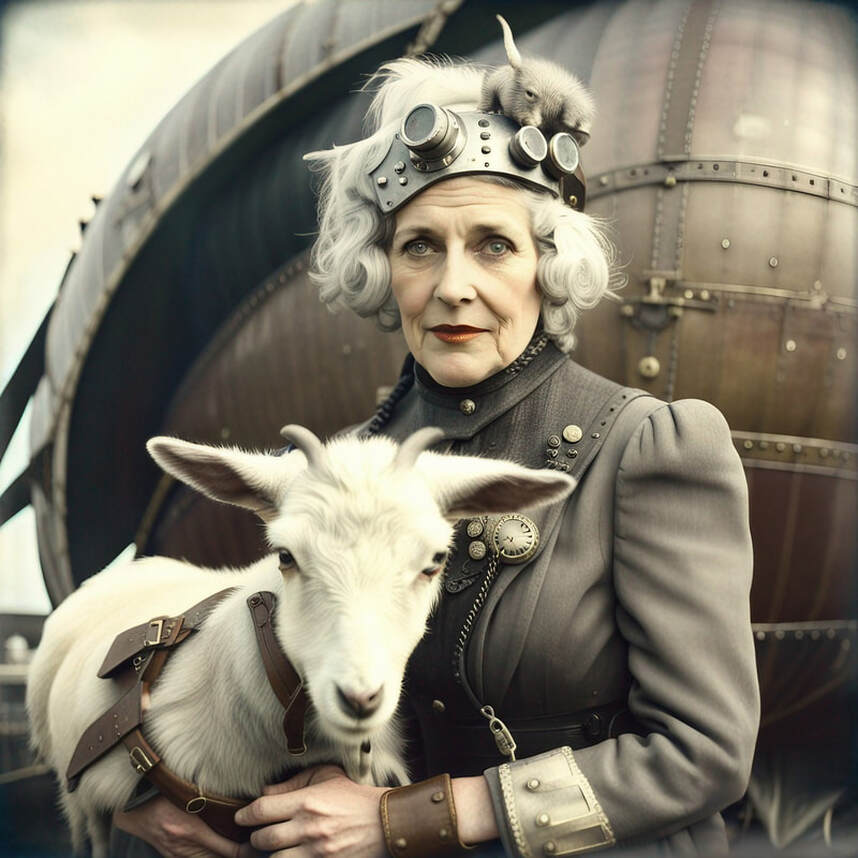
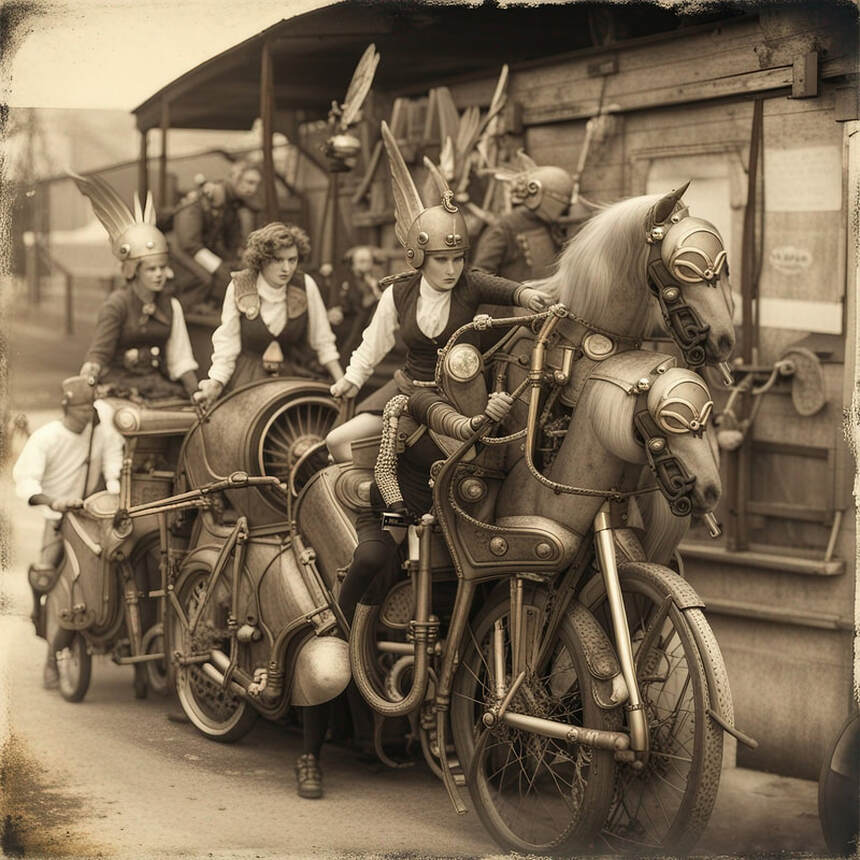
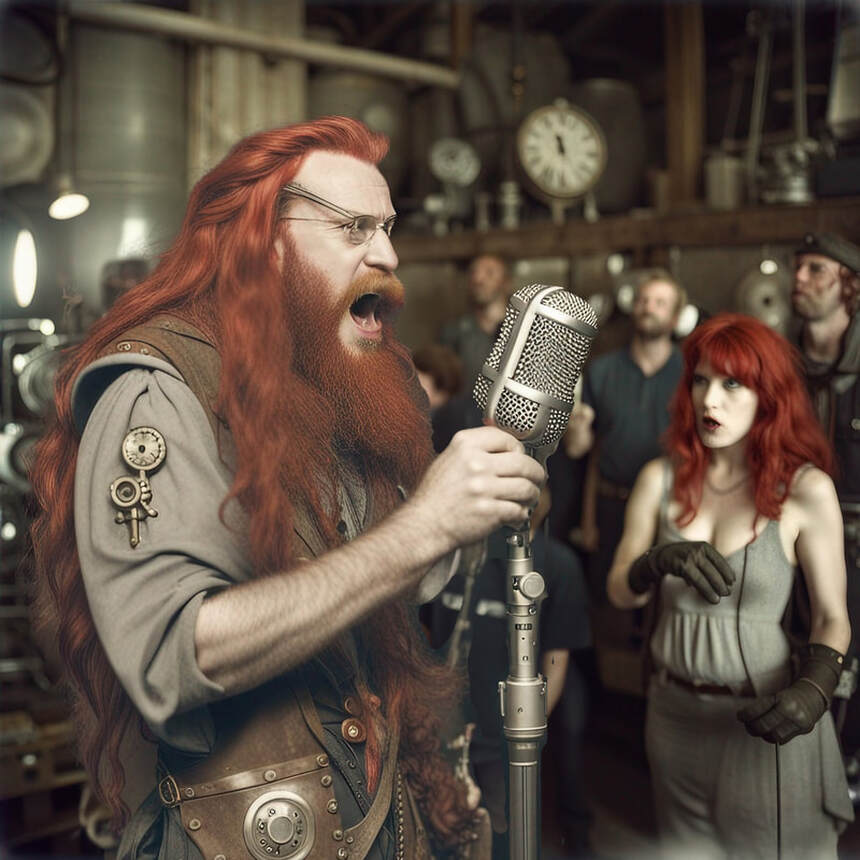
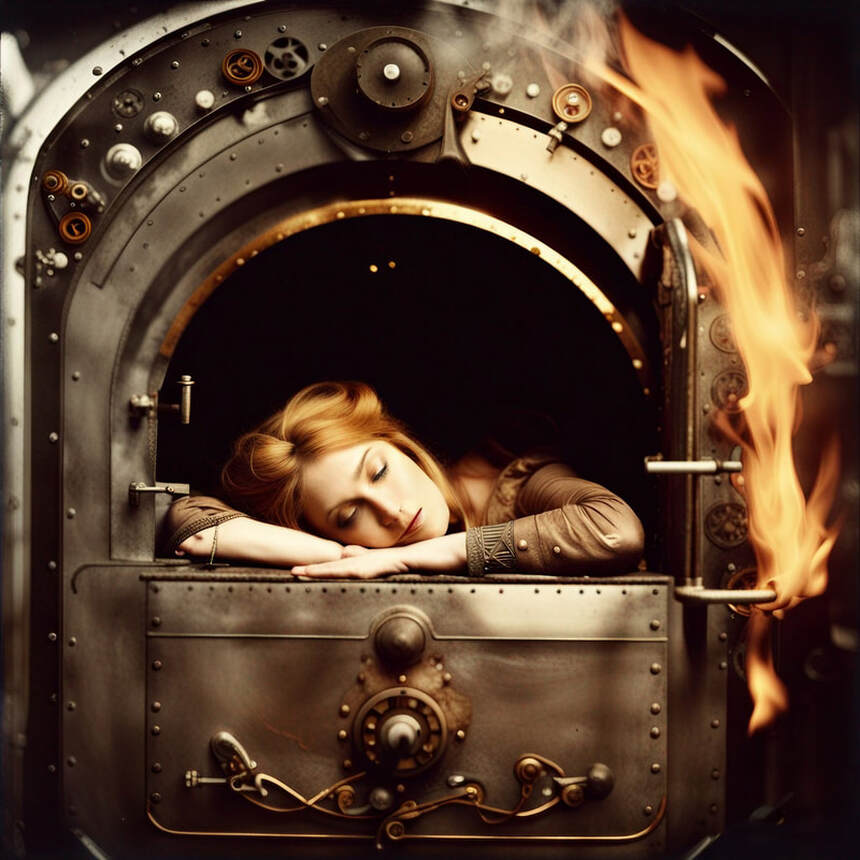
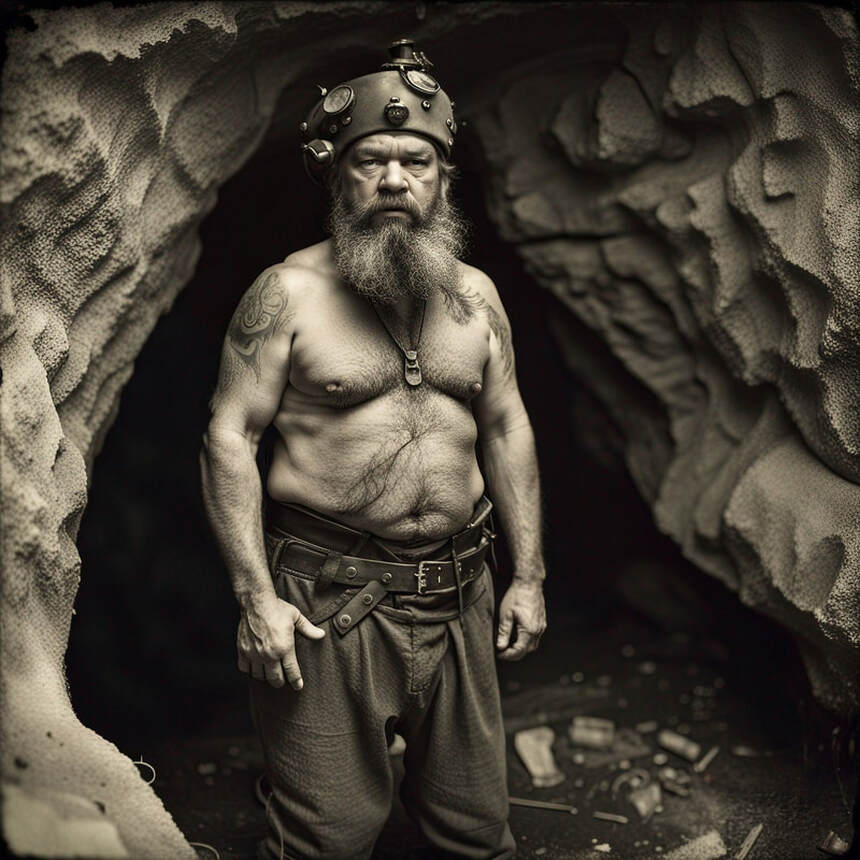
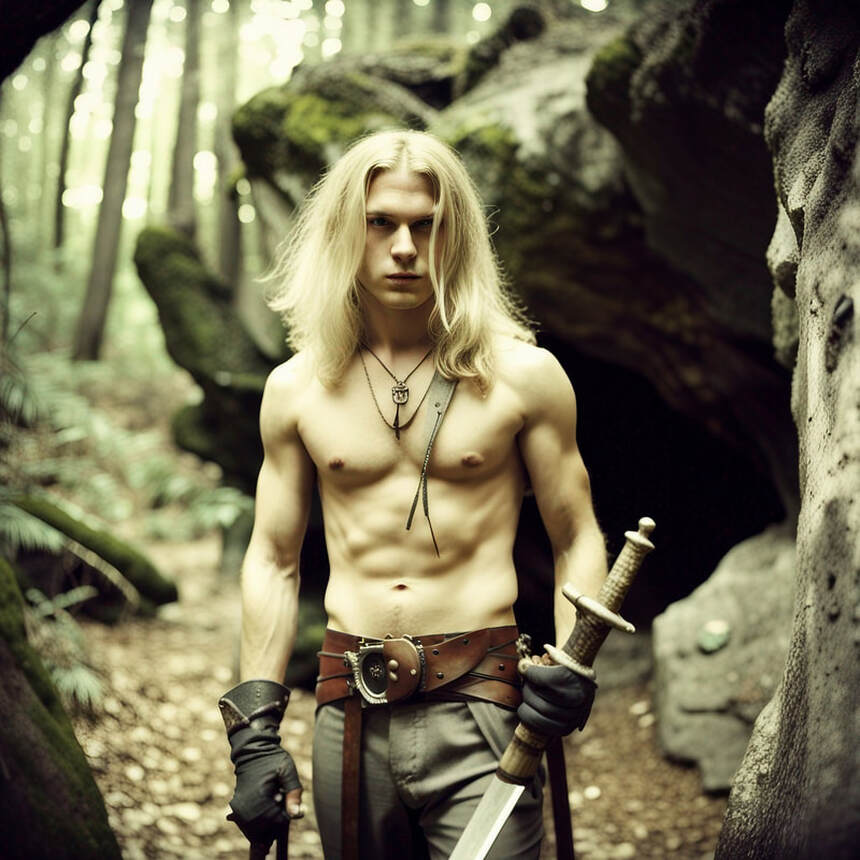
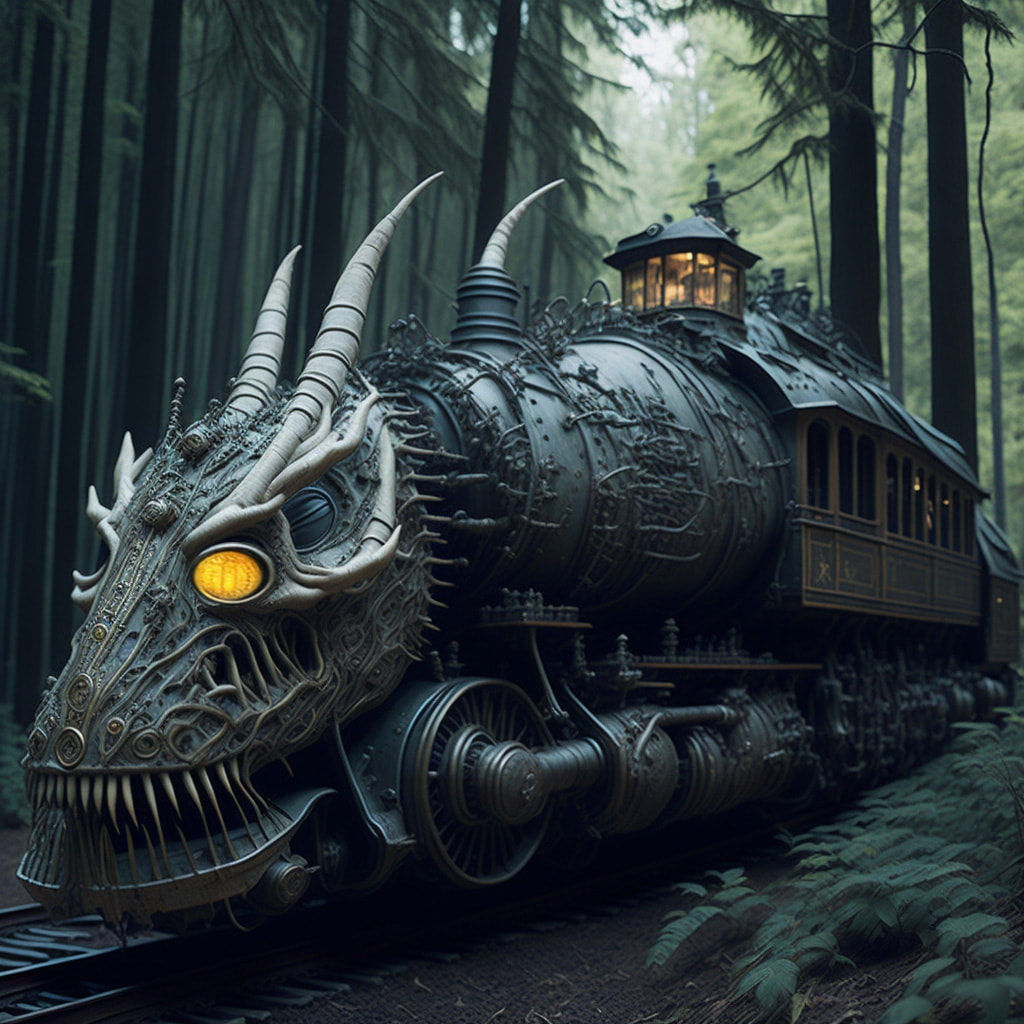
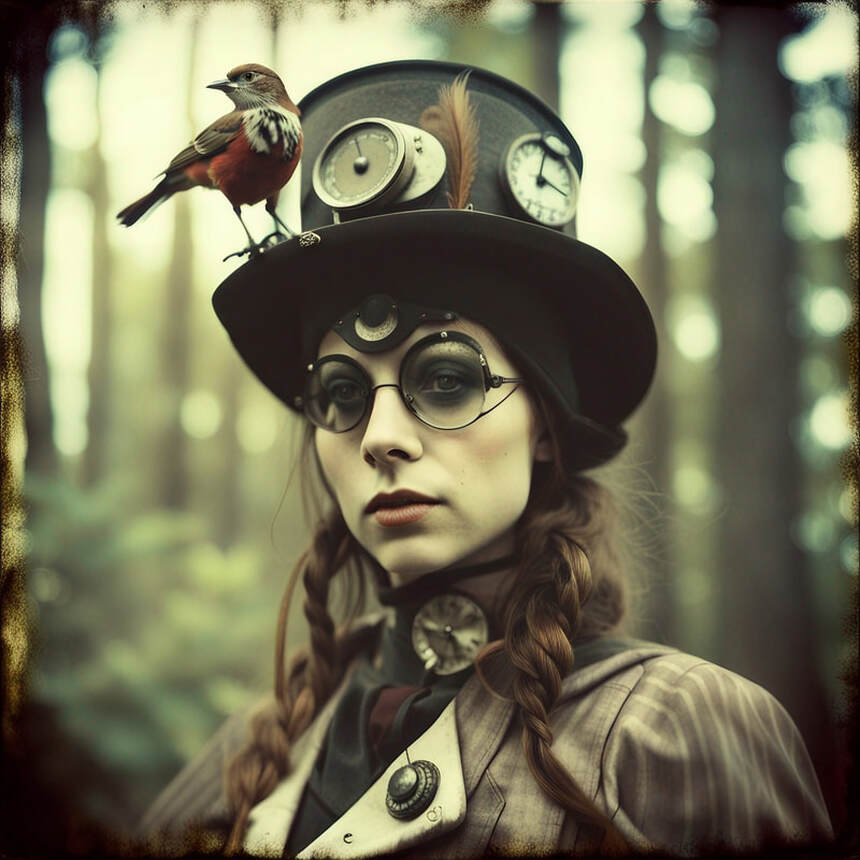
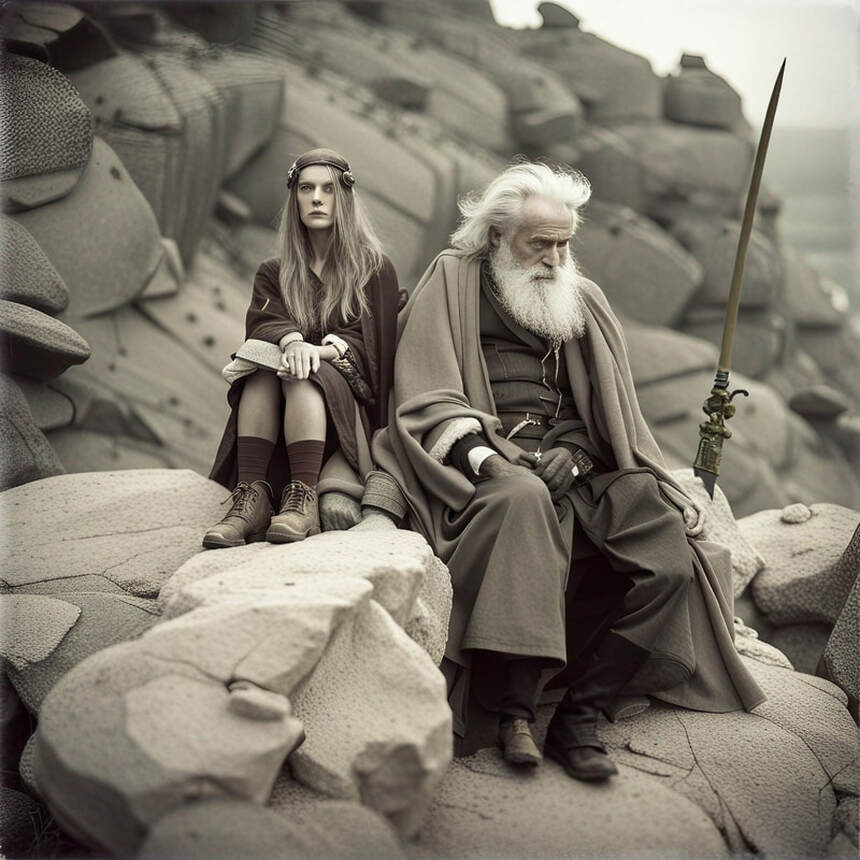
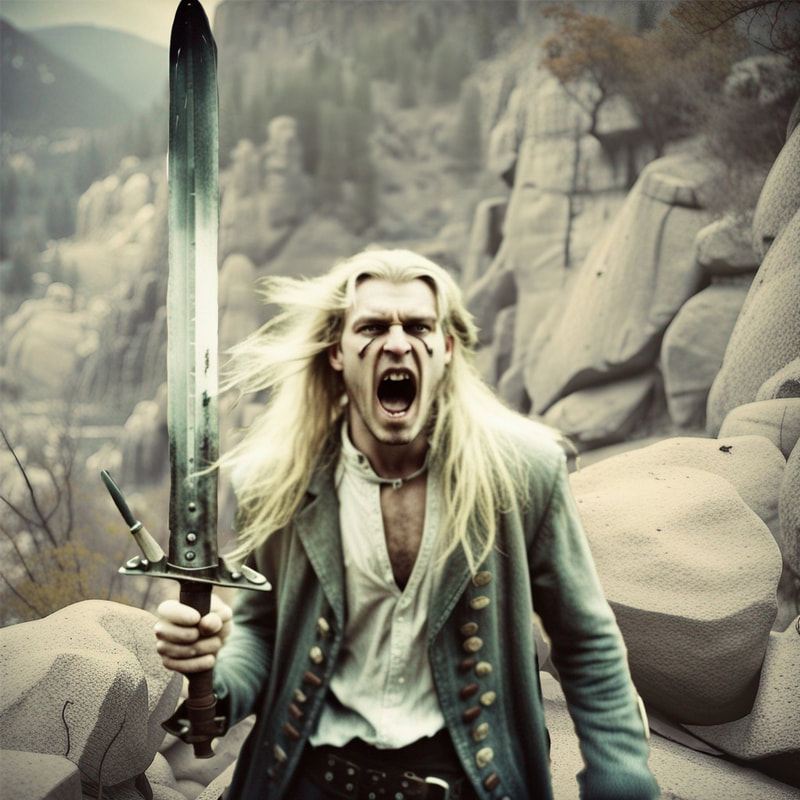
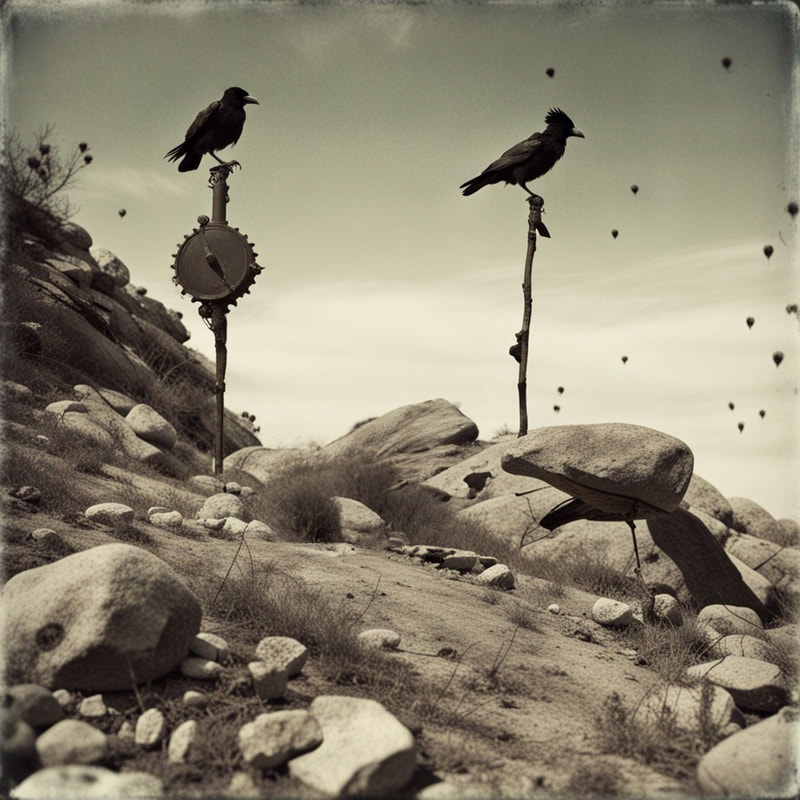
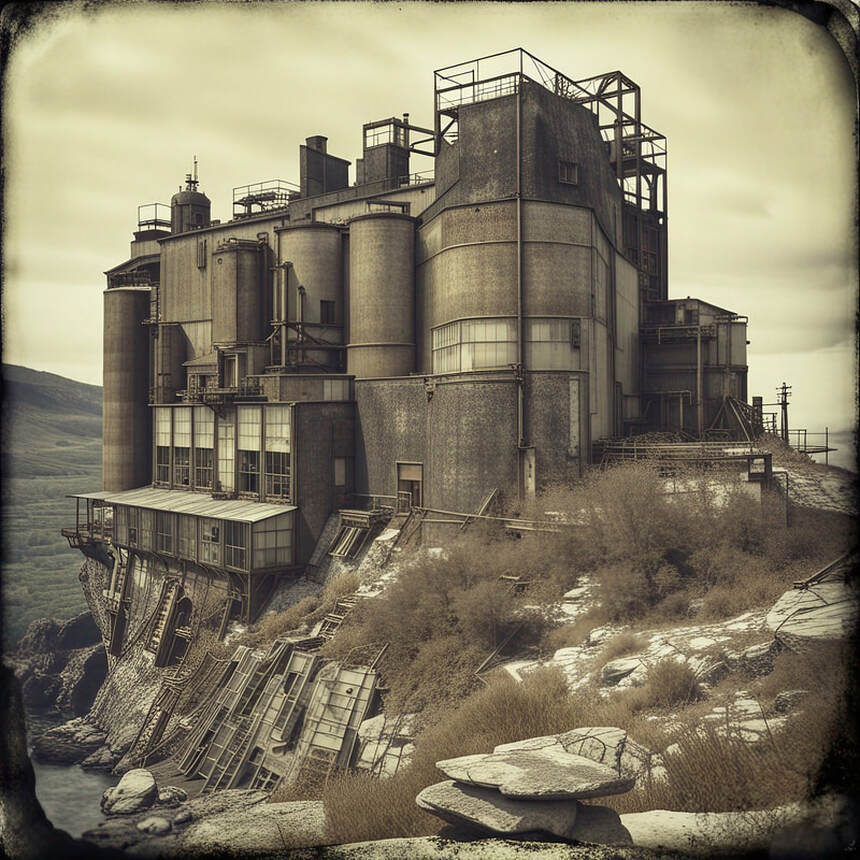
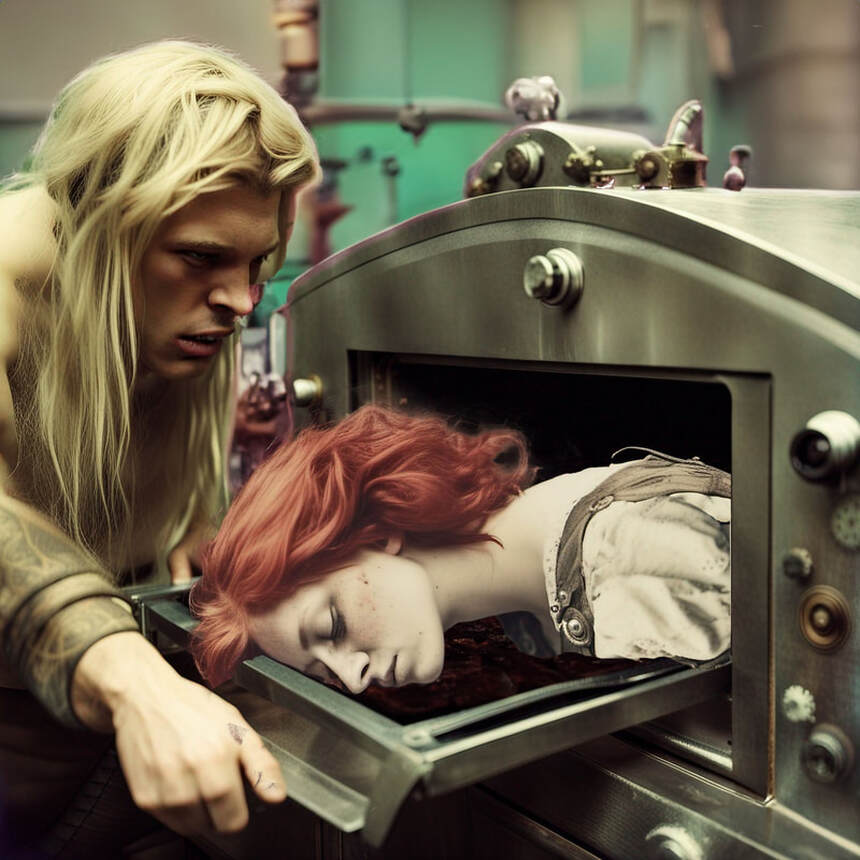

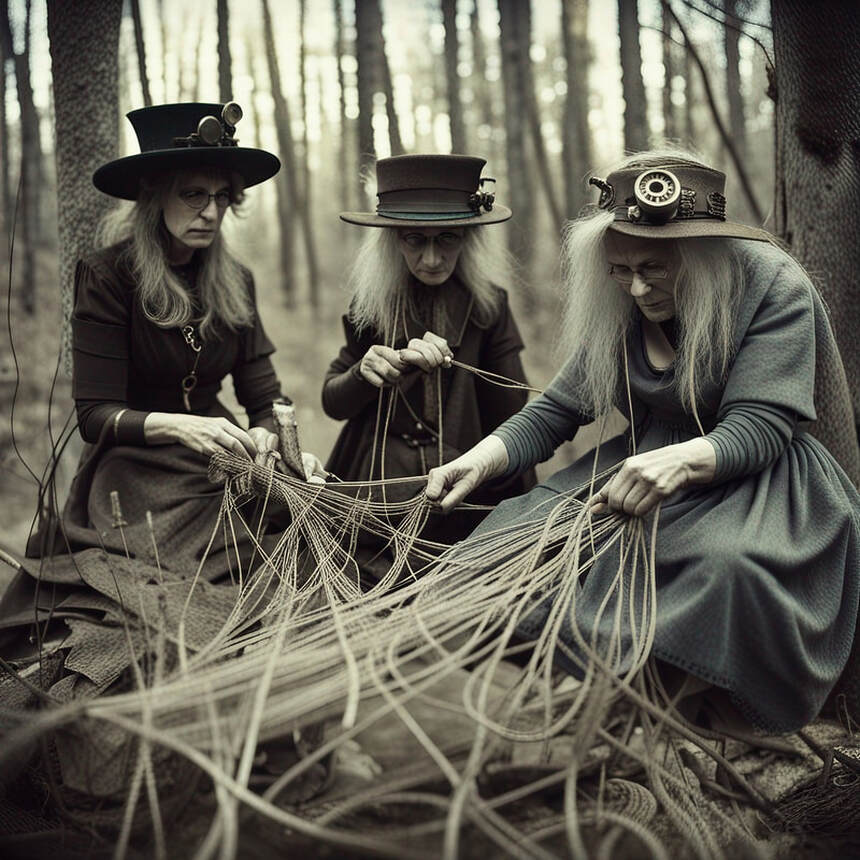
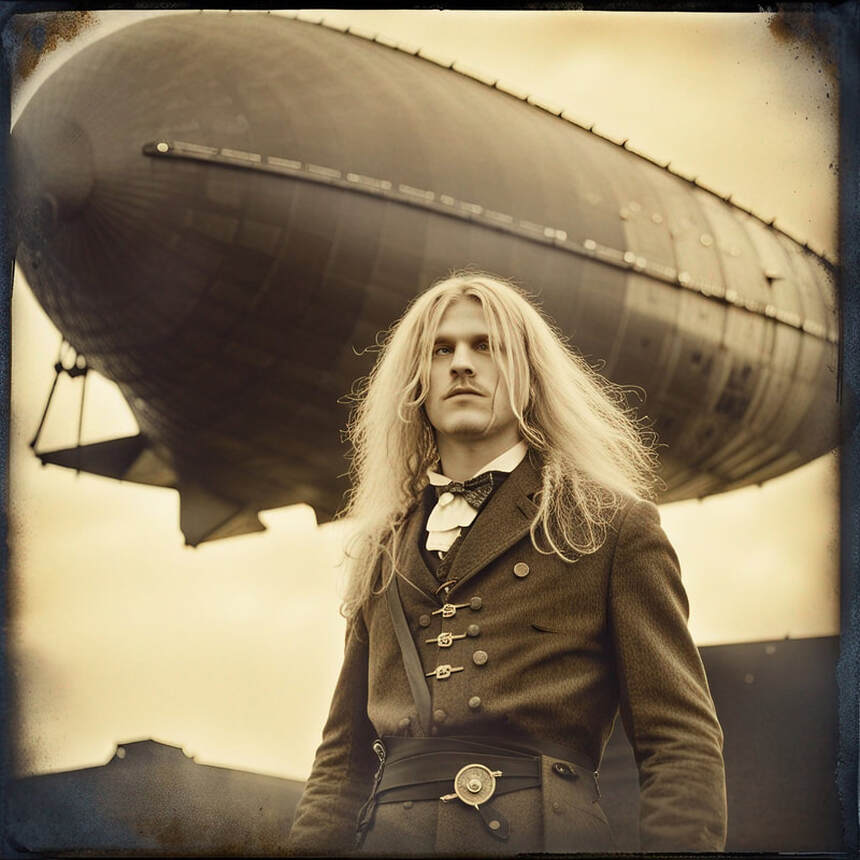
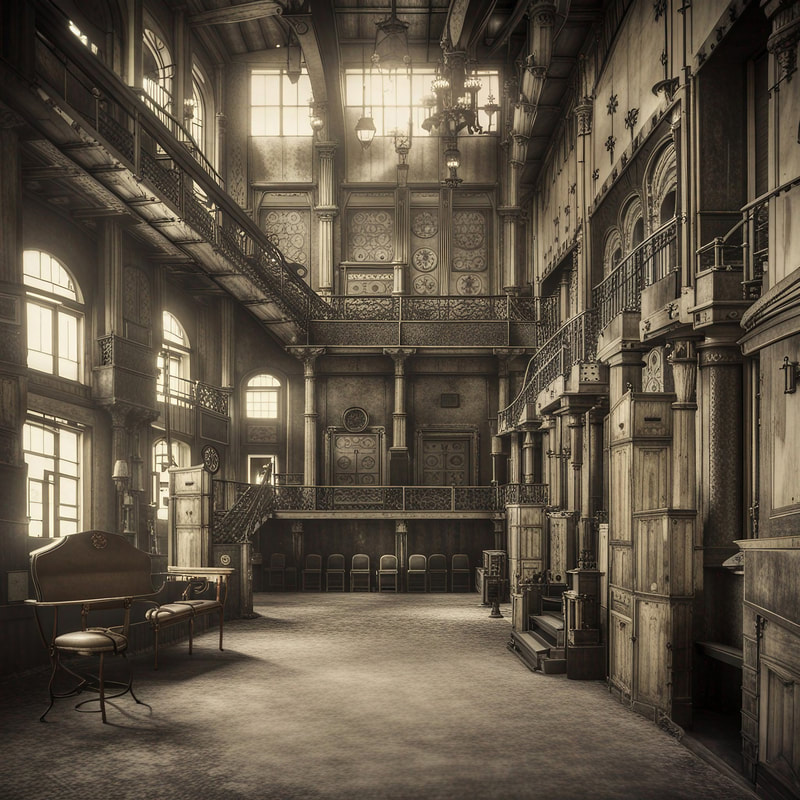
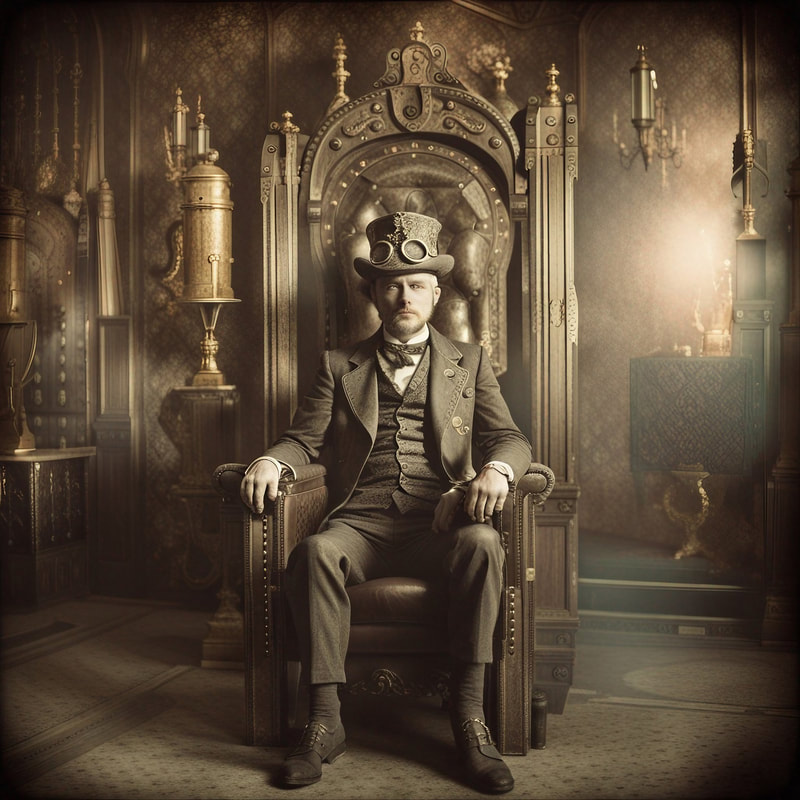
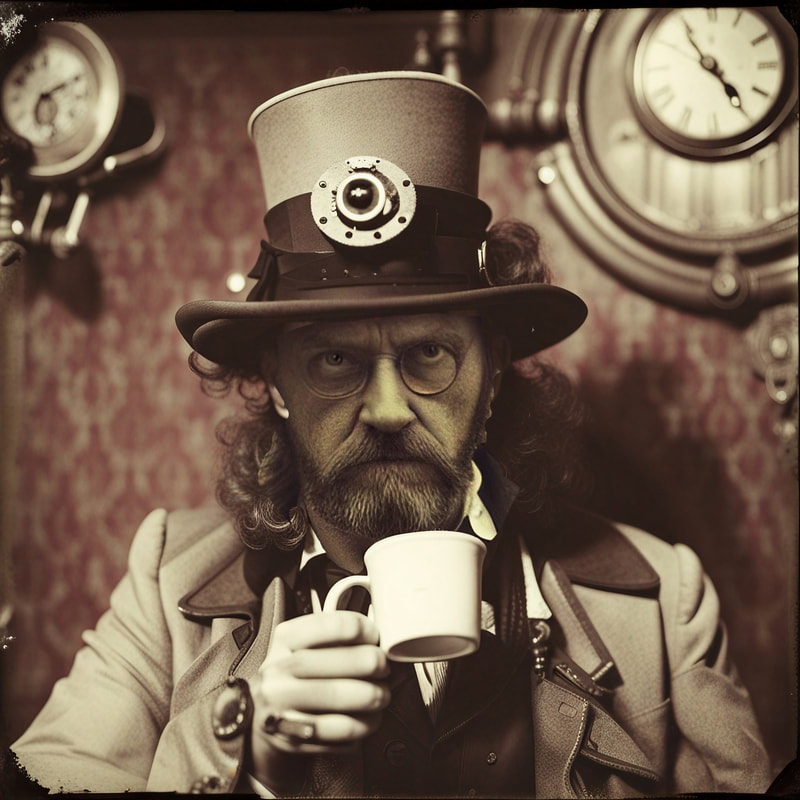
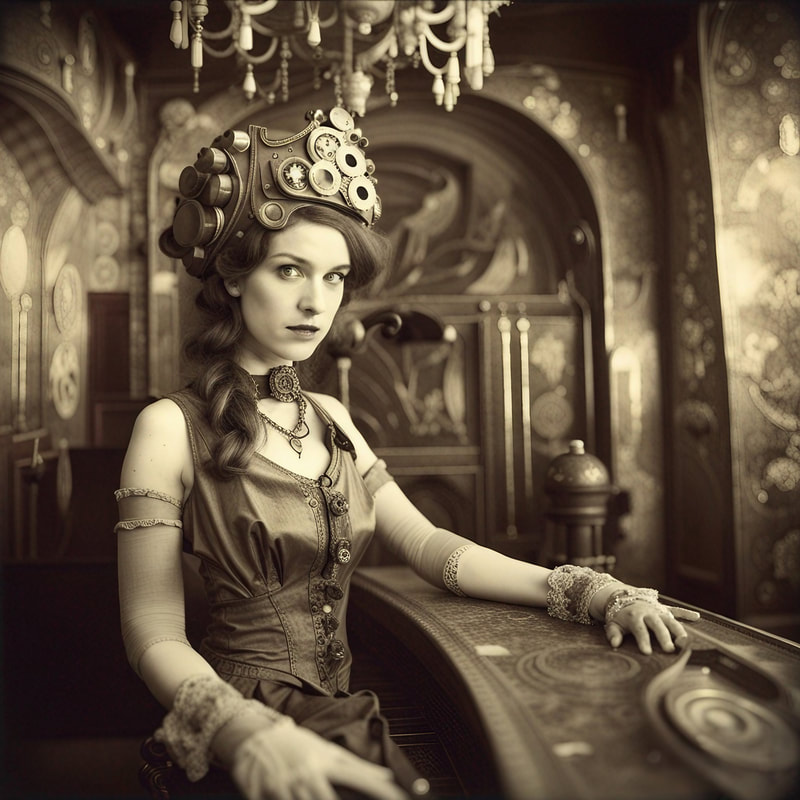
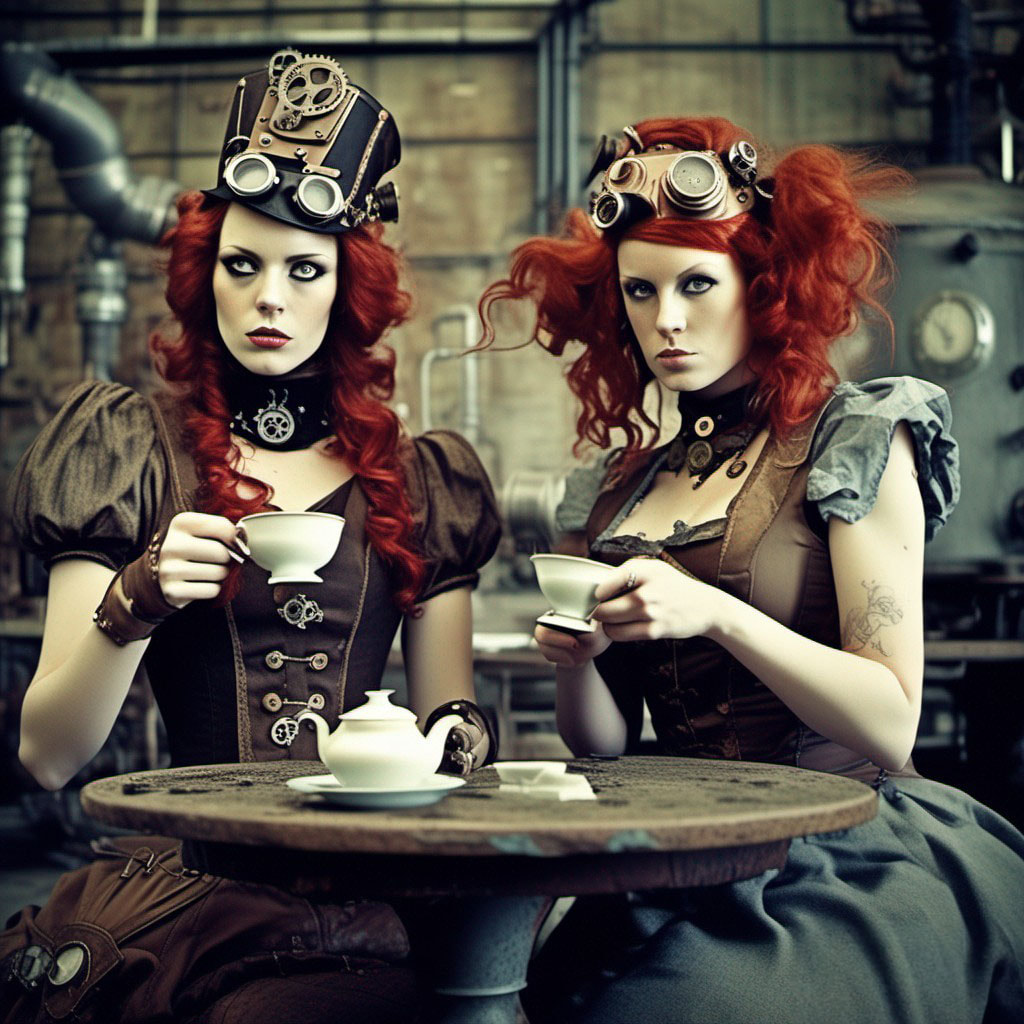
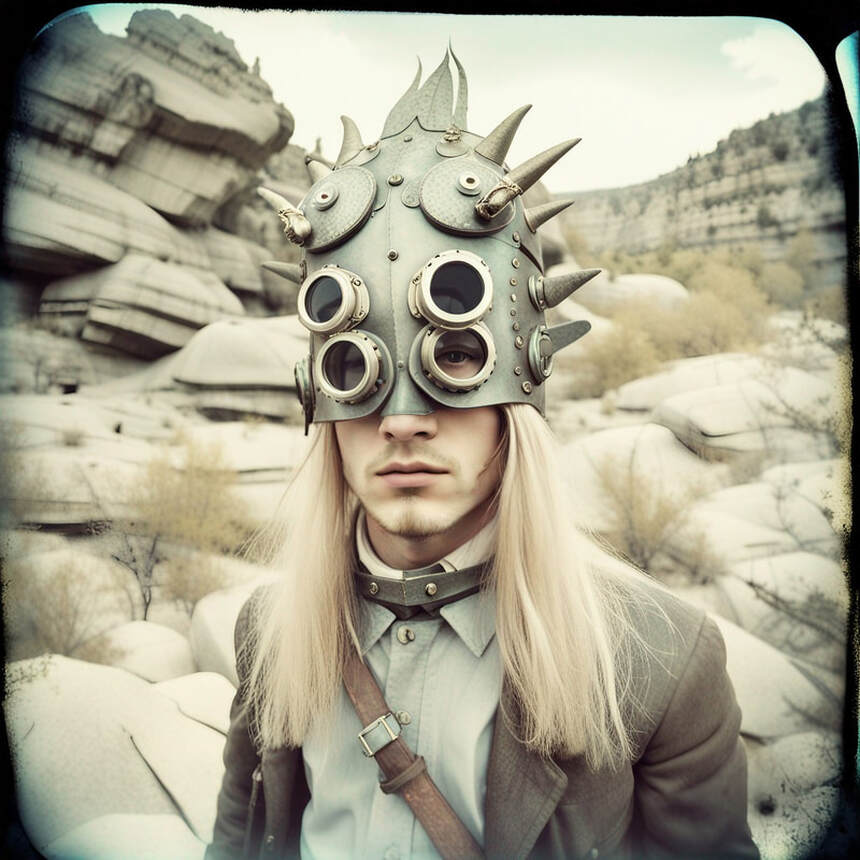
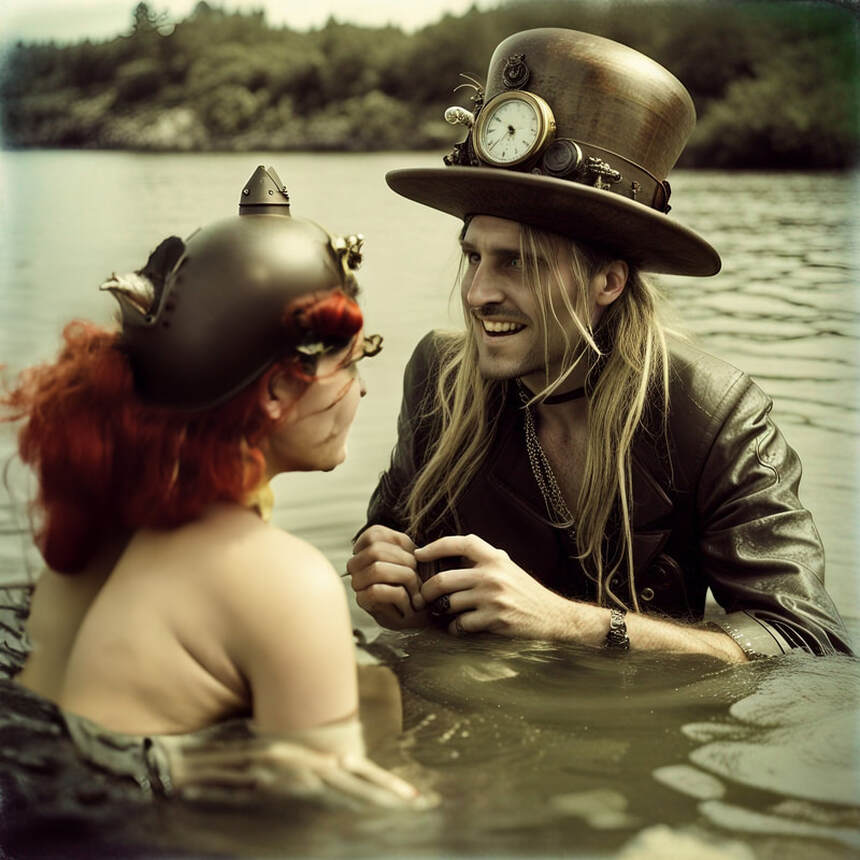
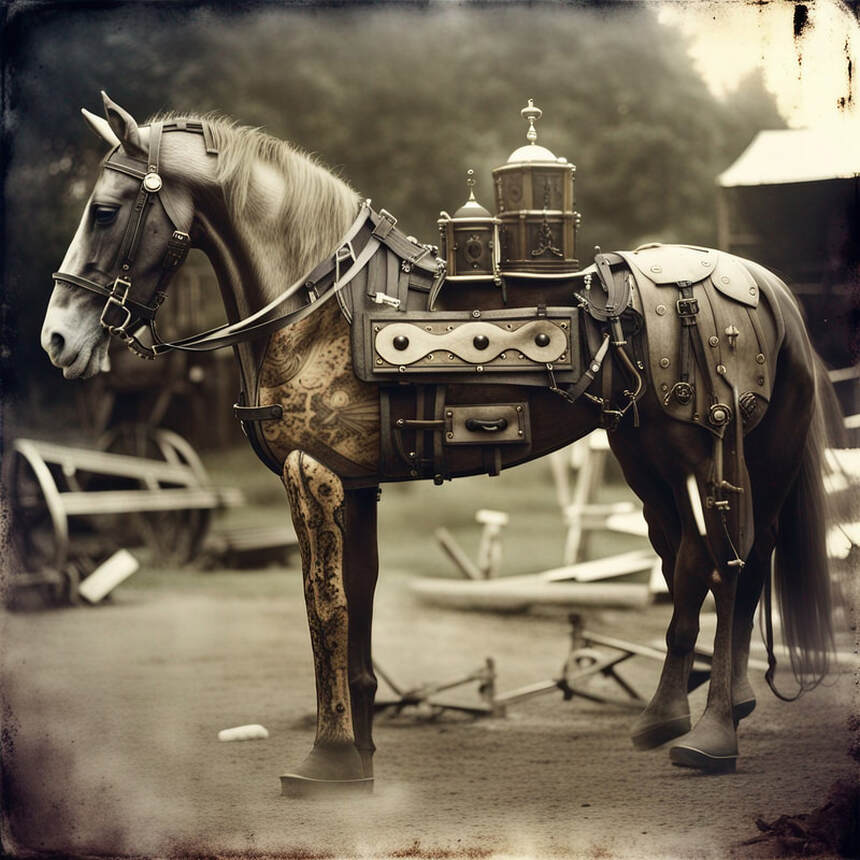
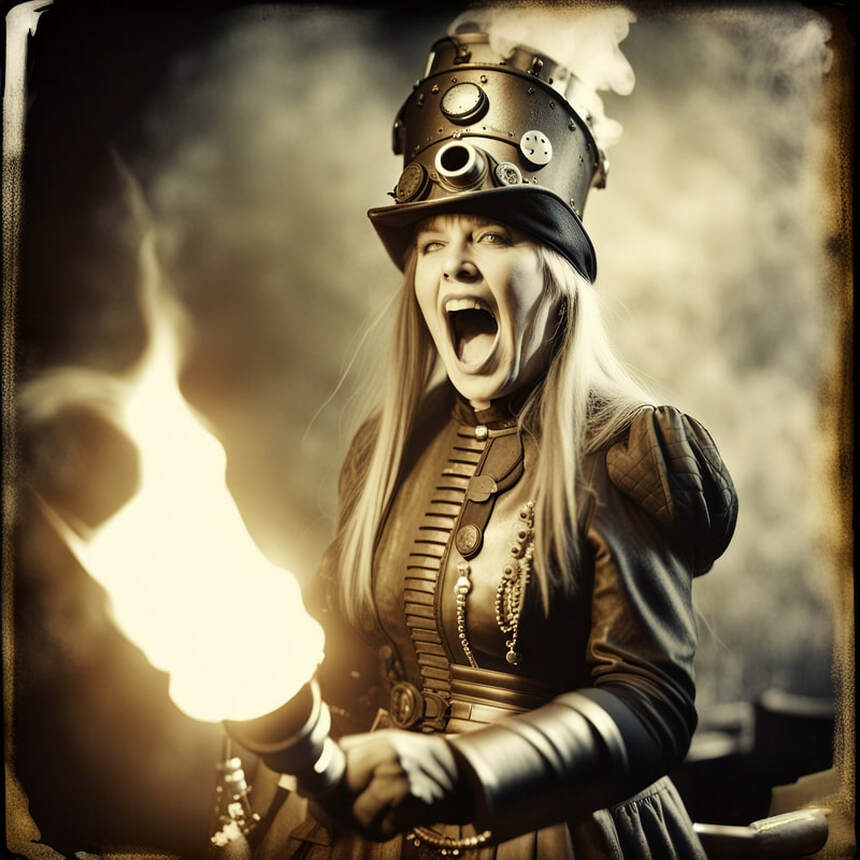
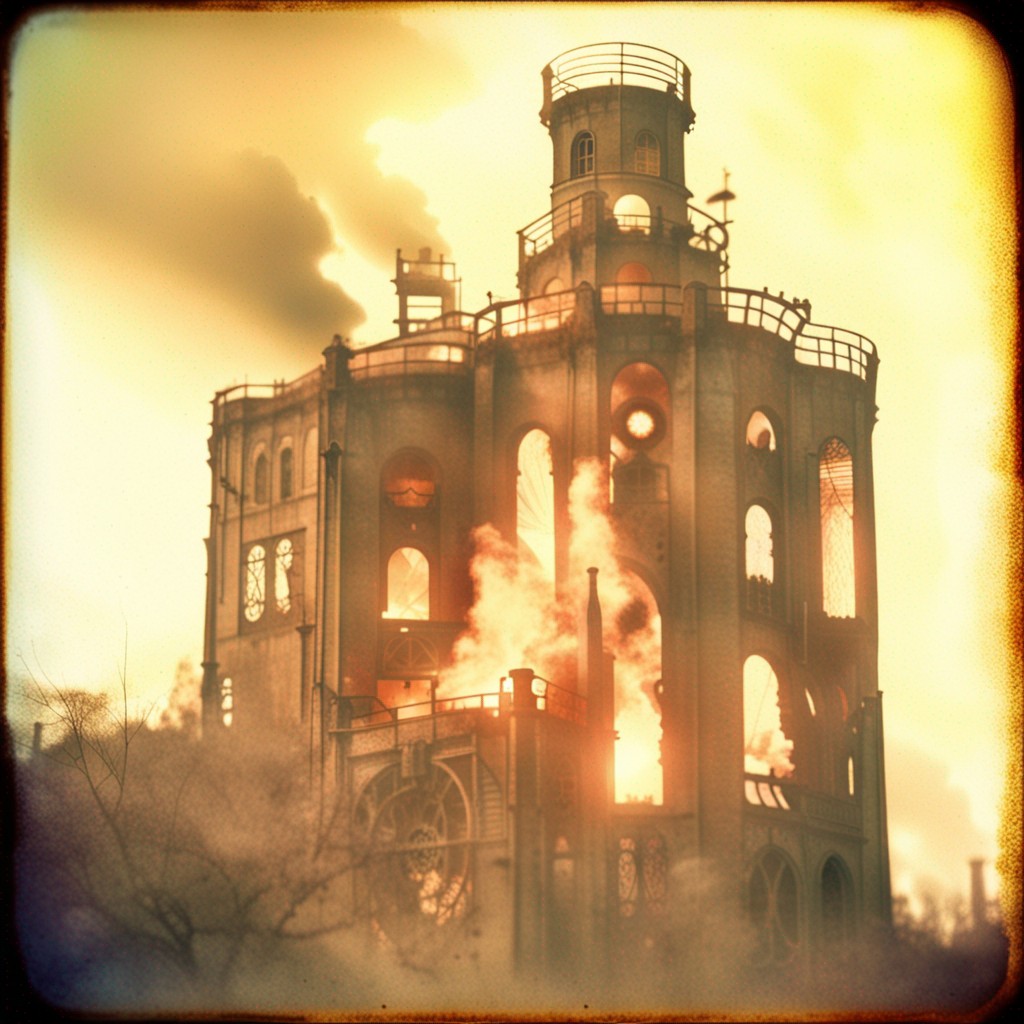
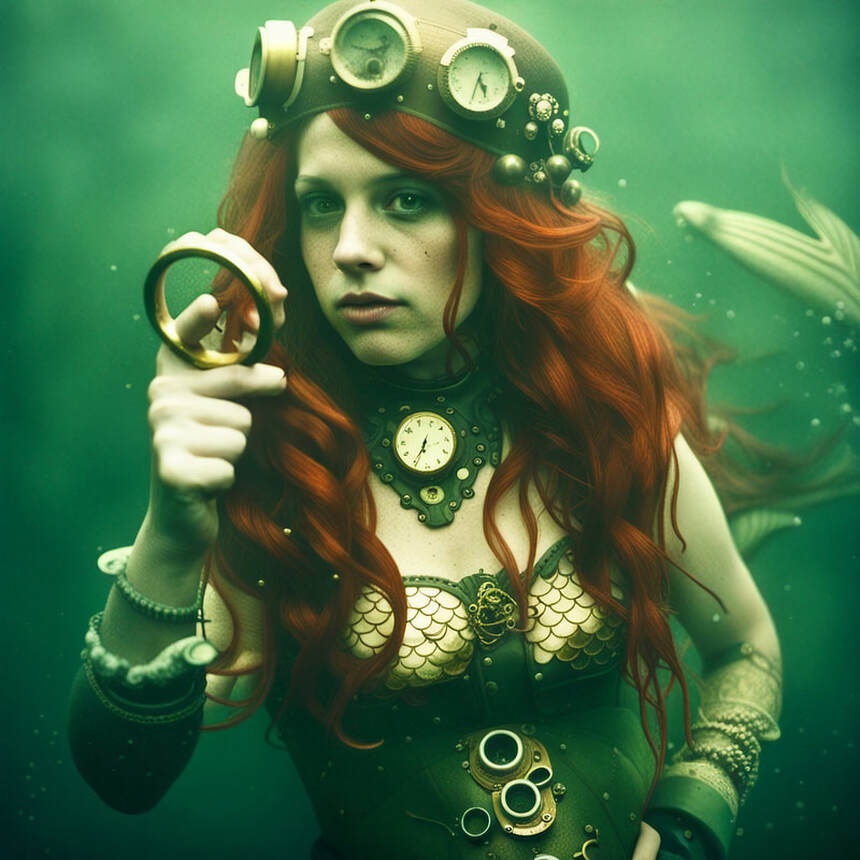
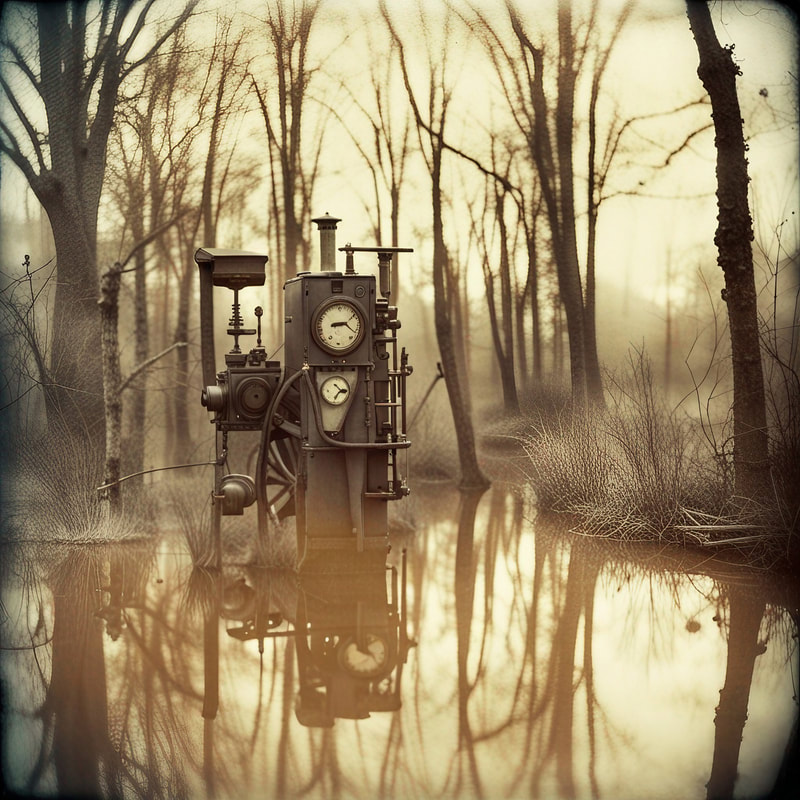
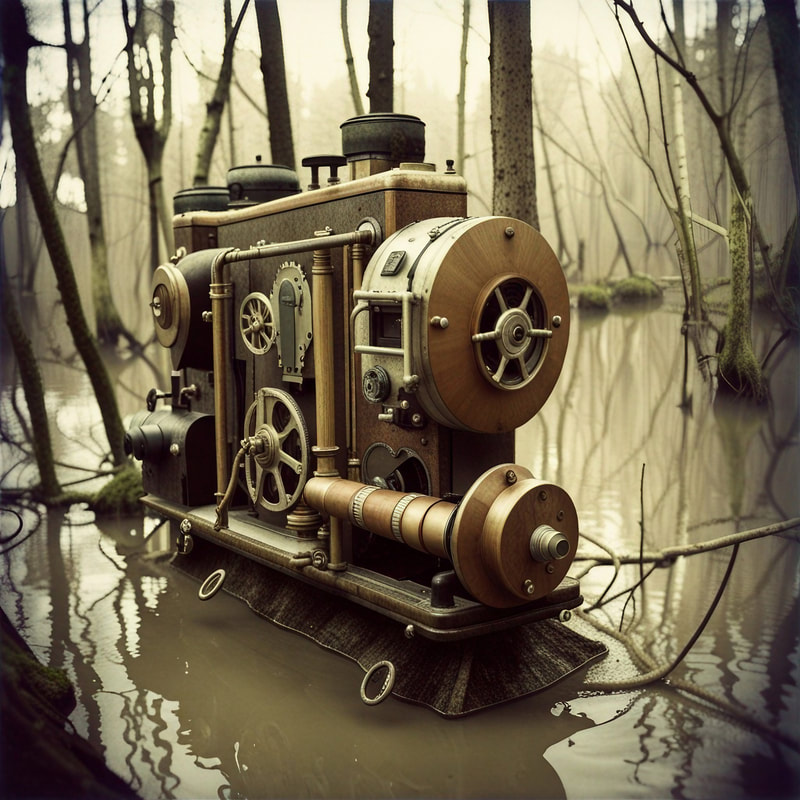
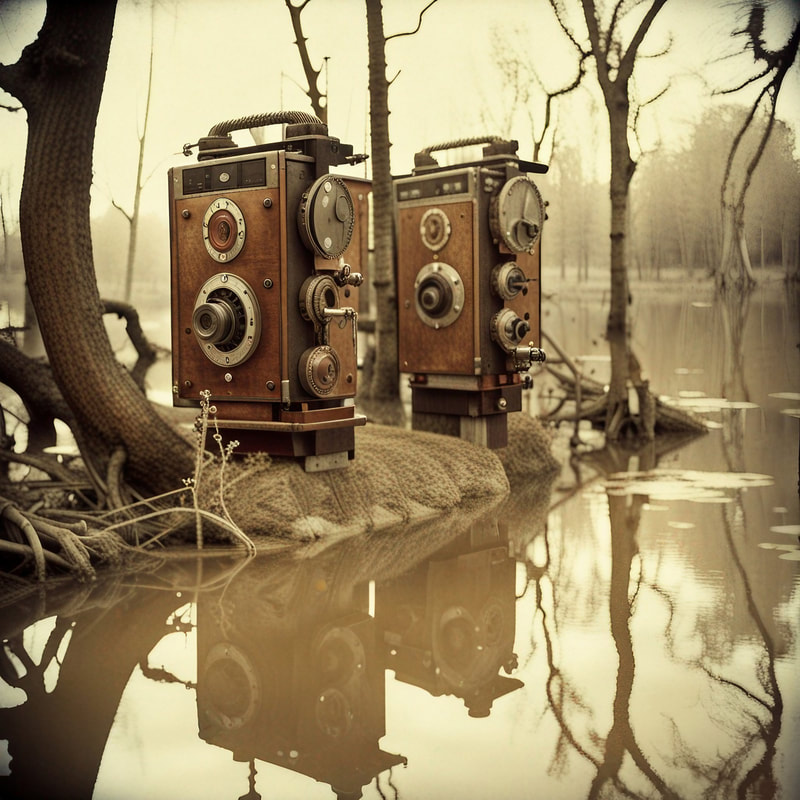
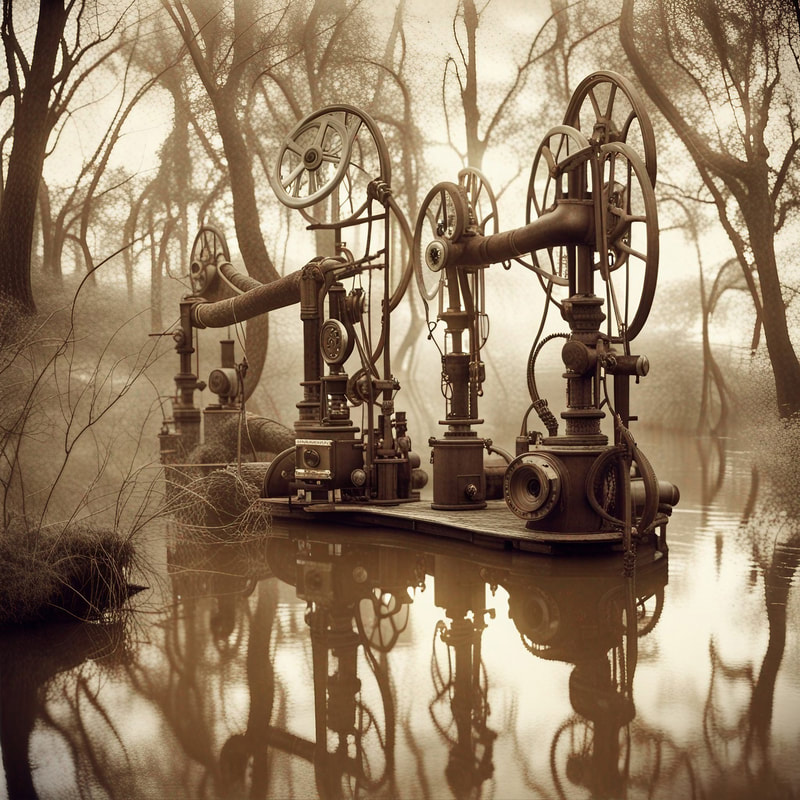
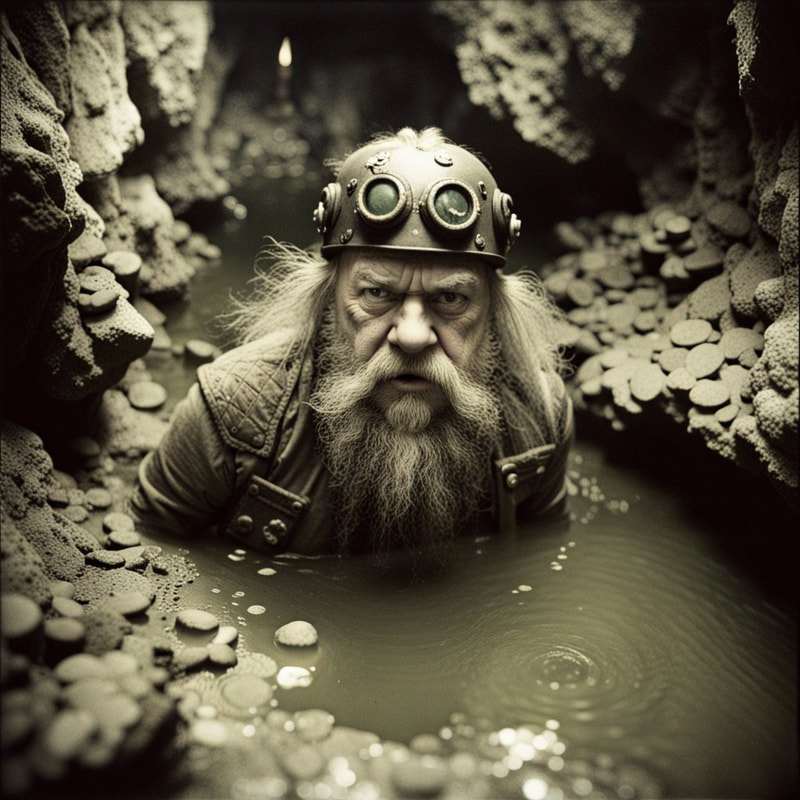
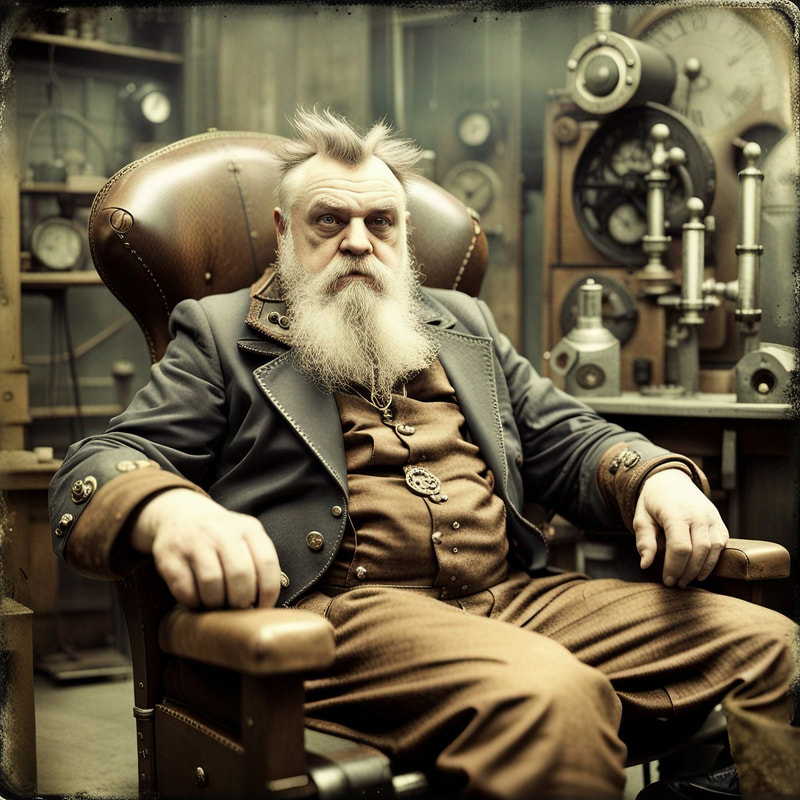
 RSS Feed
RSS Feed